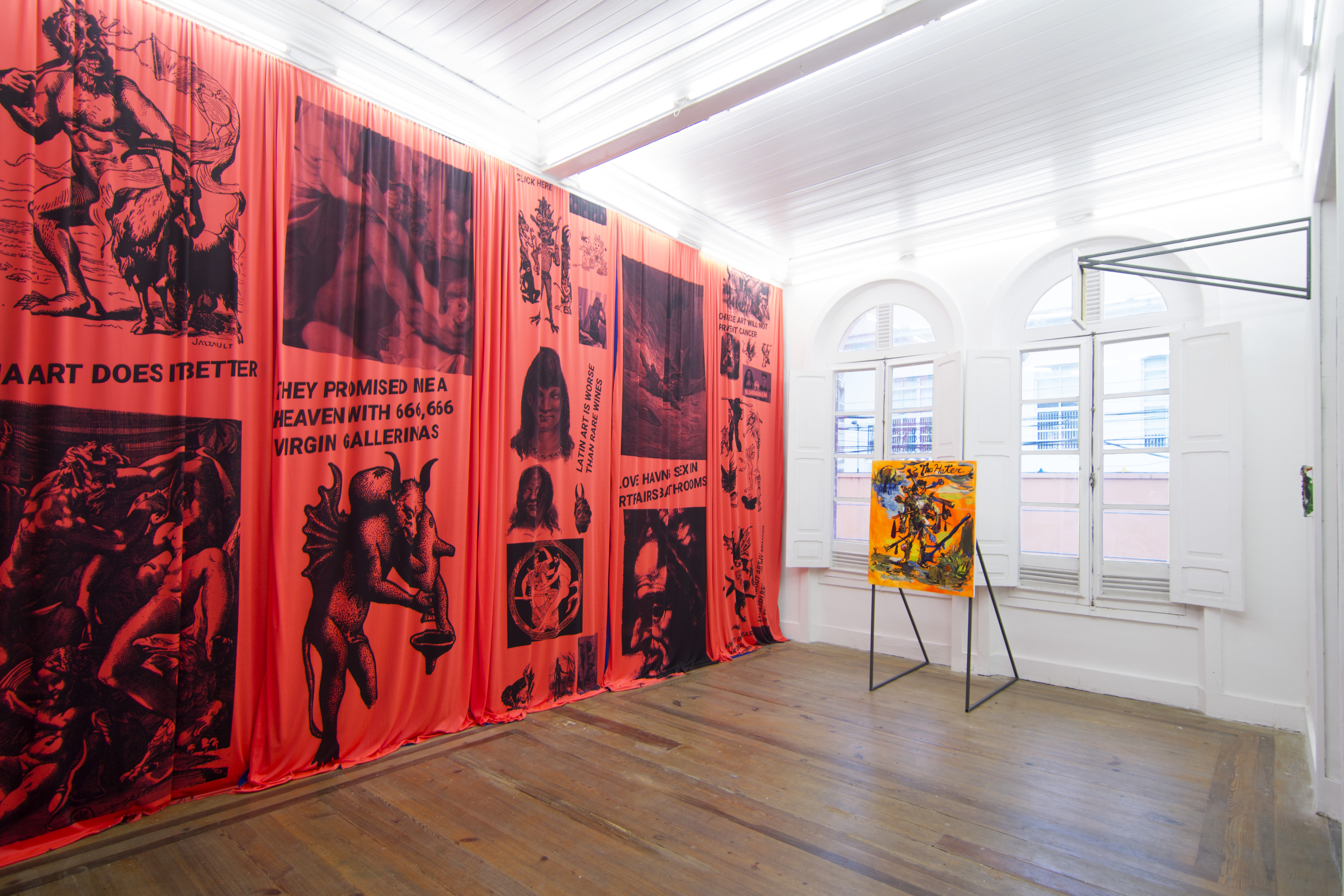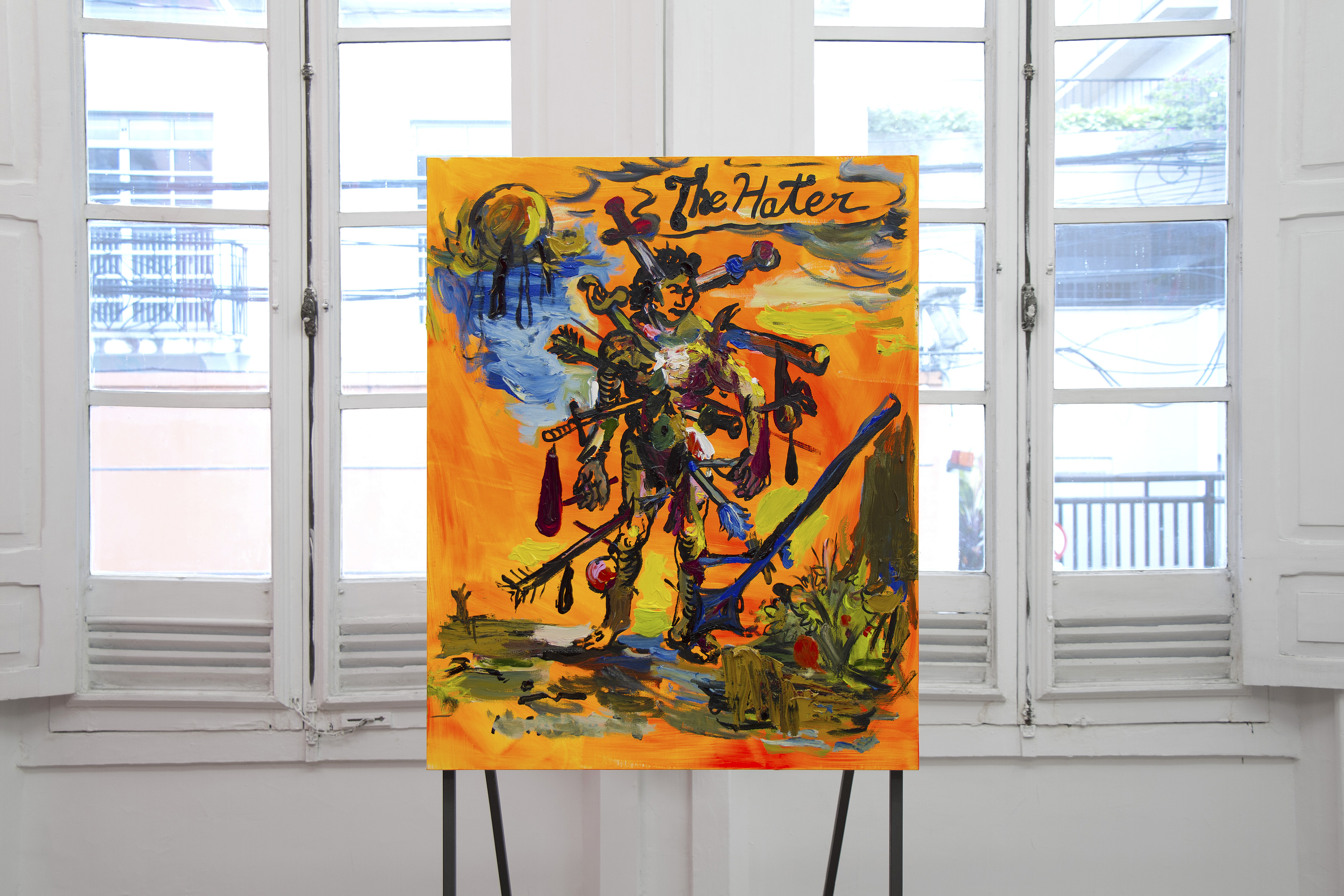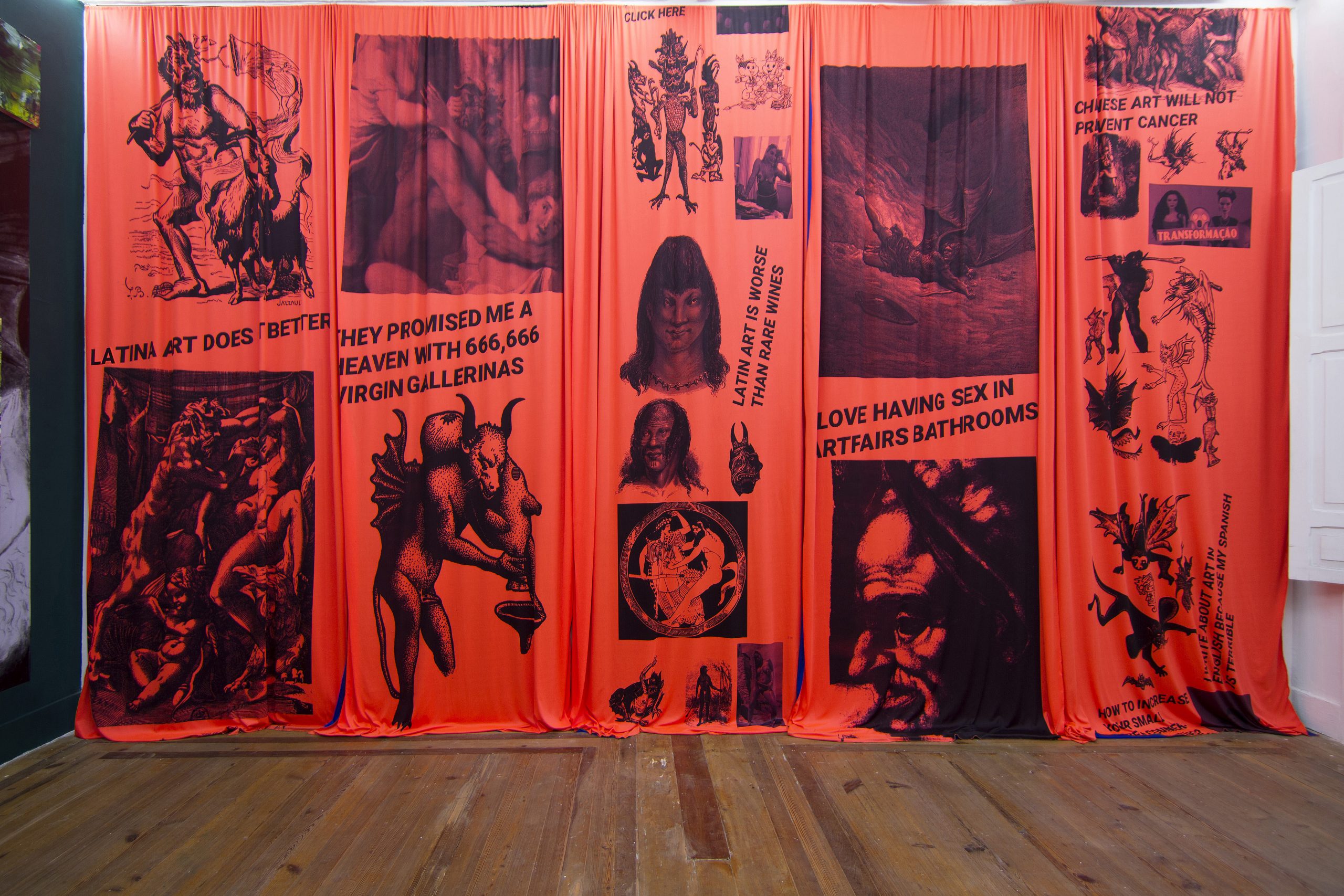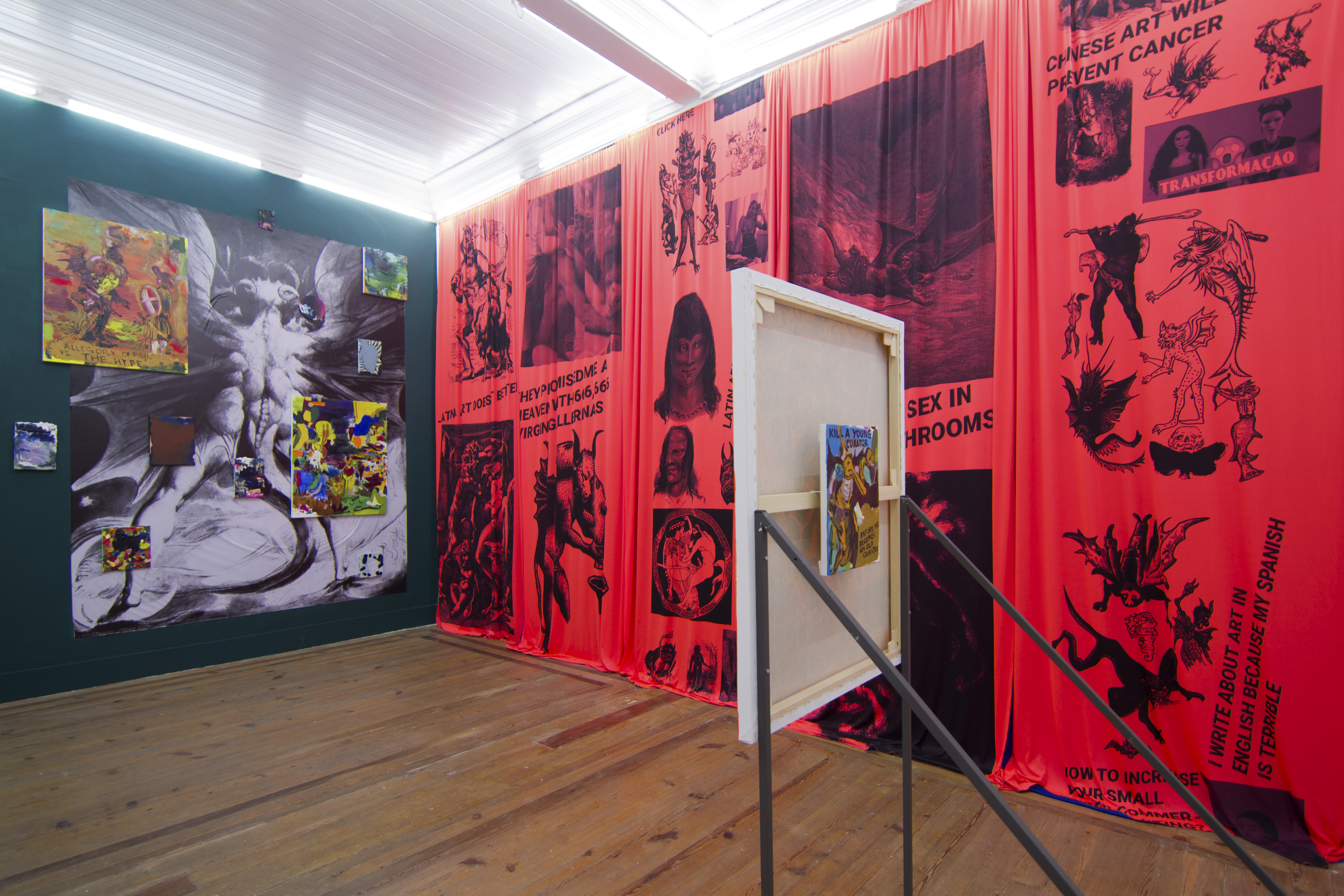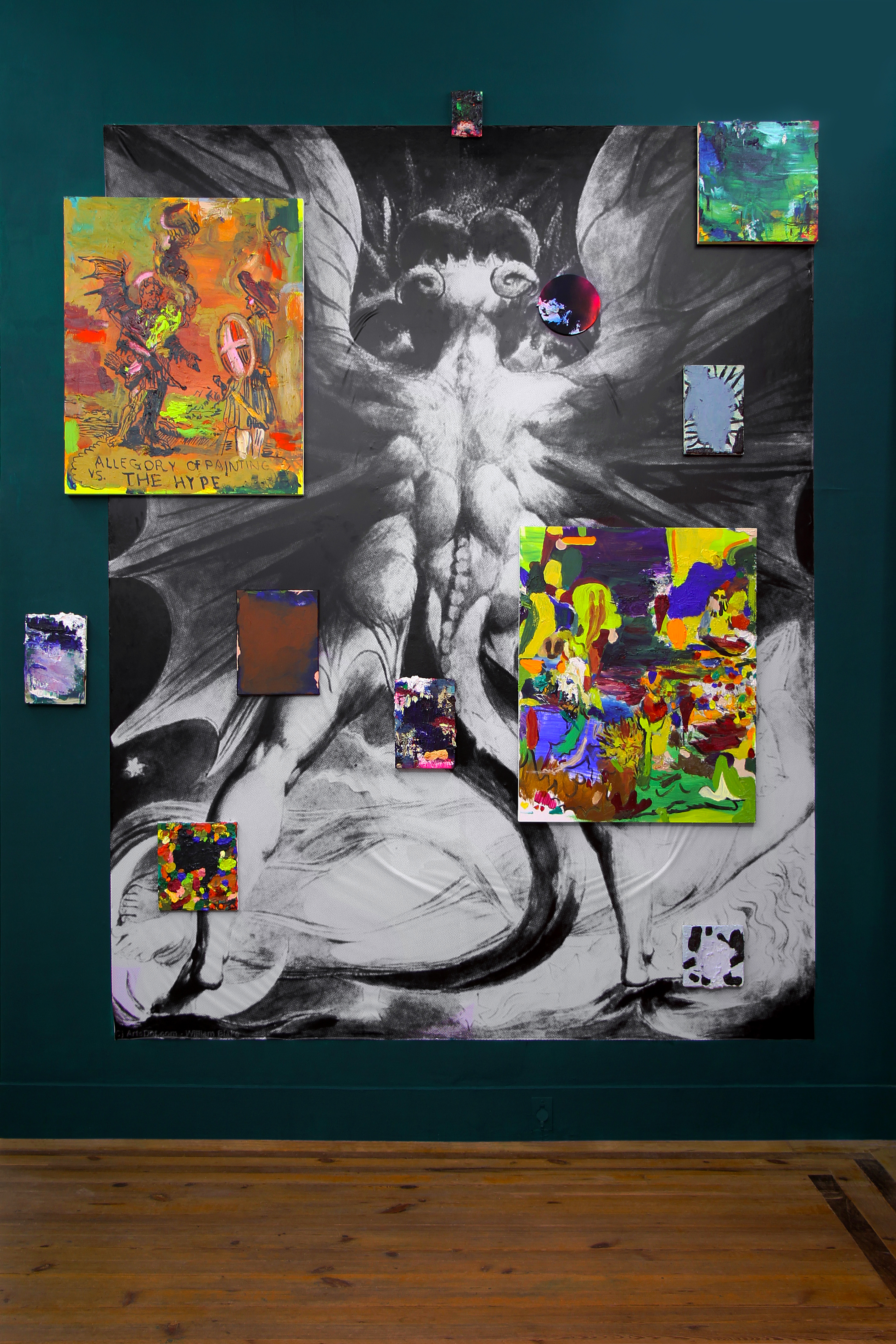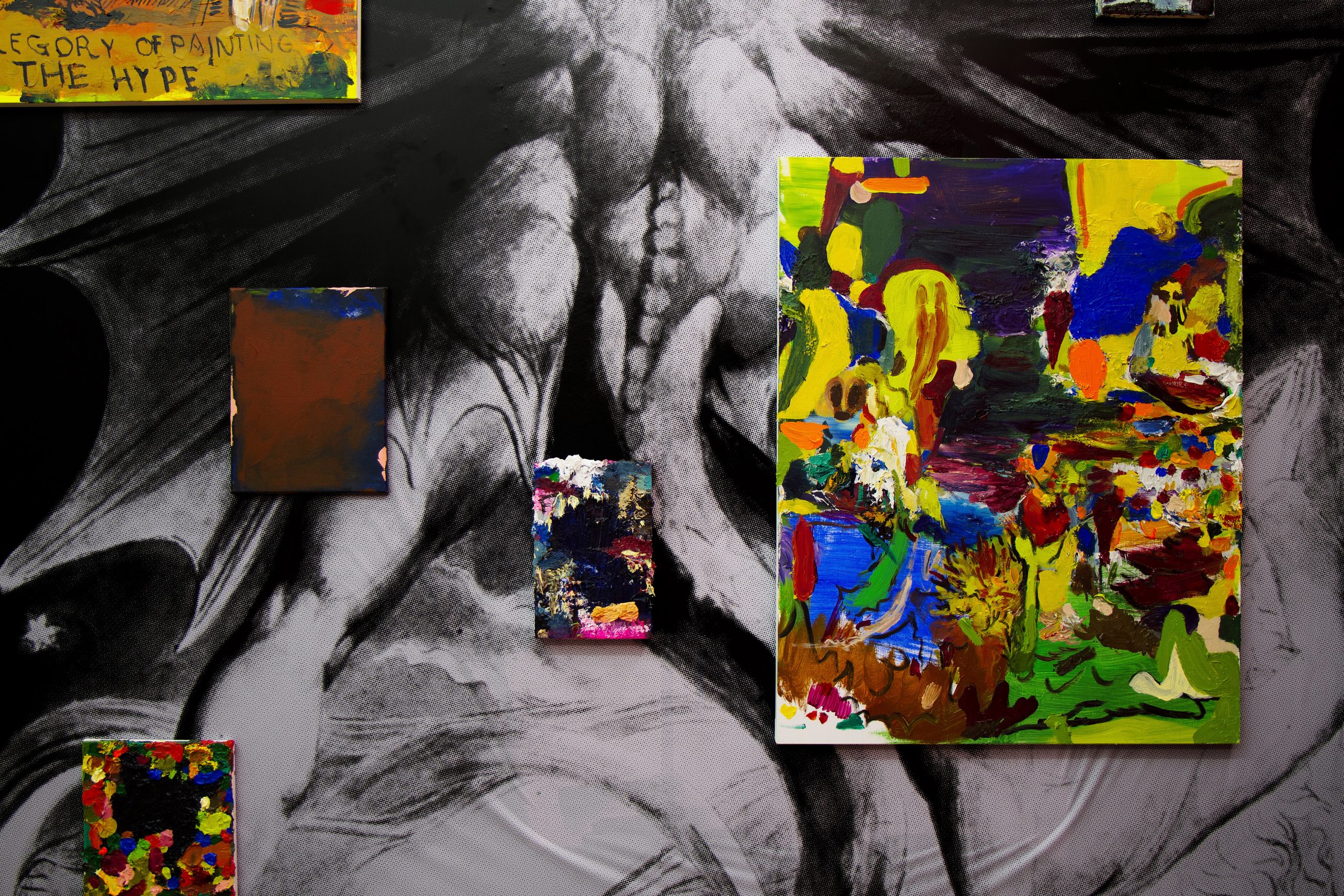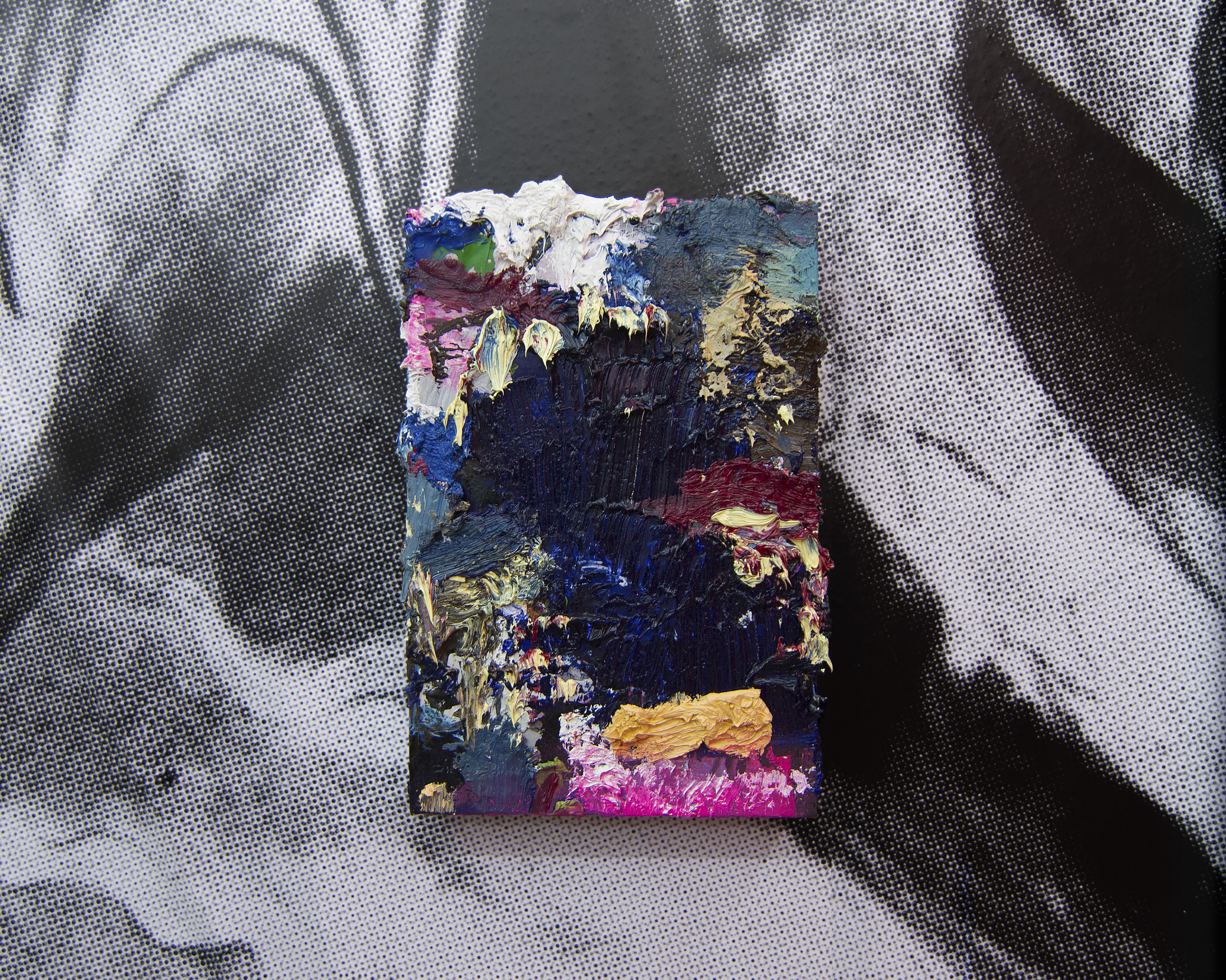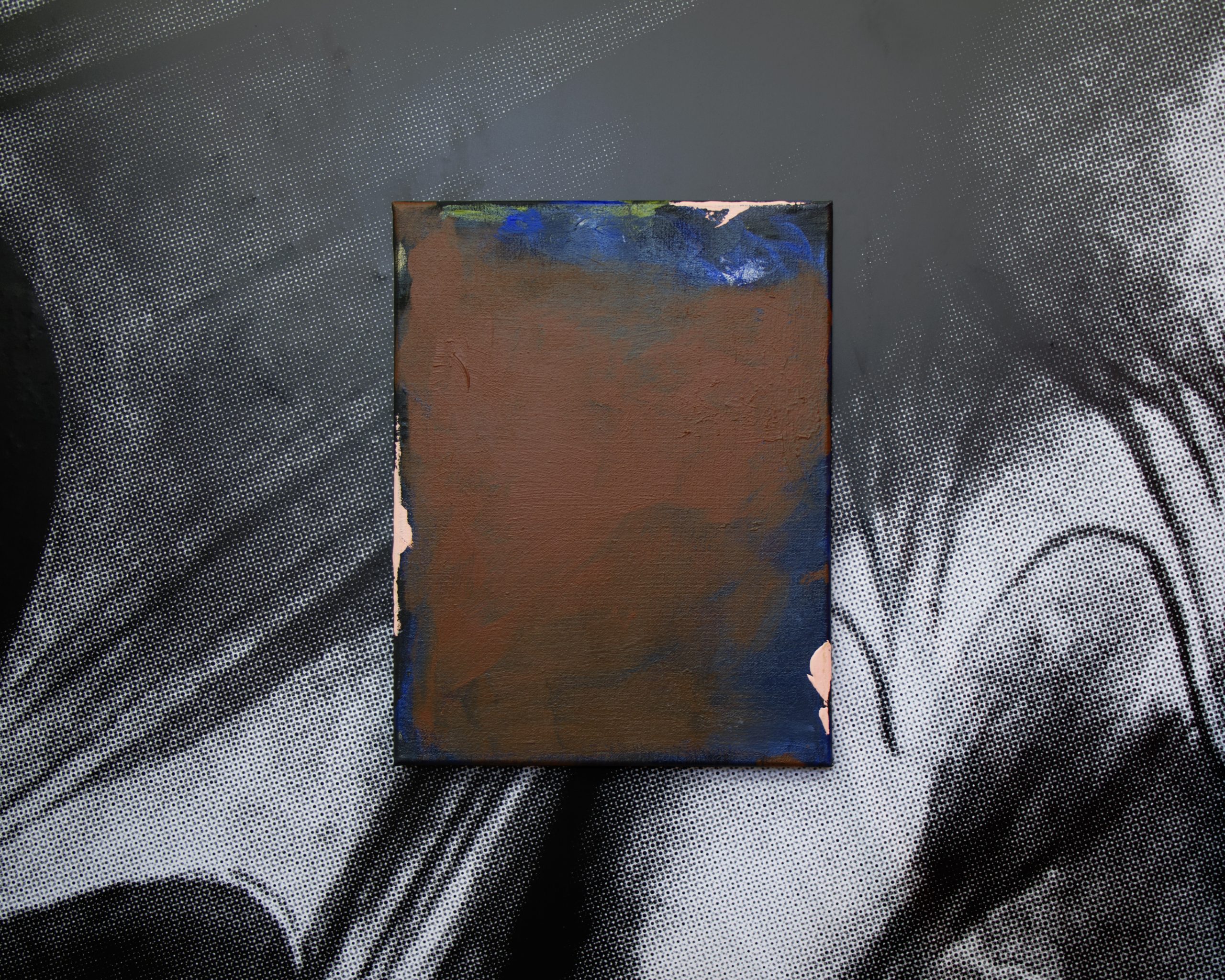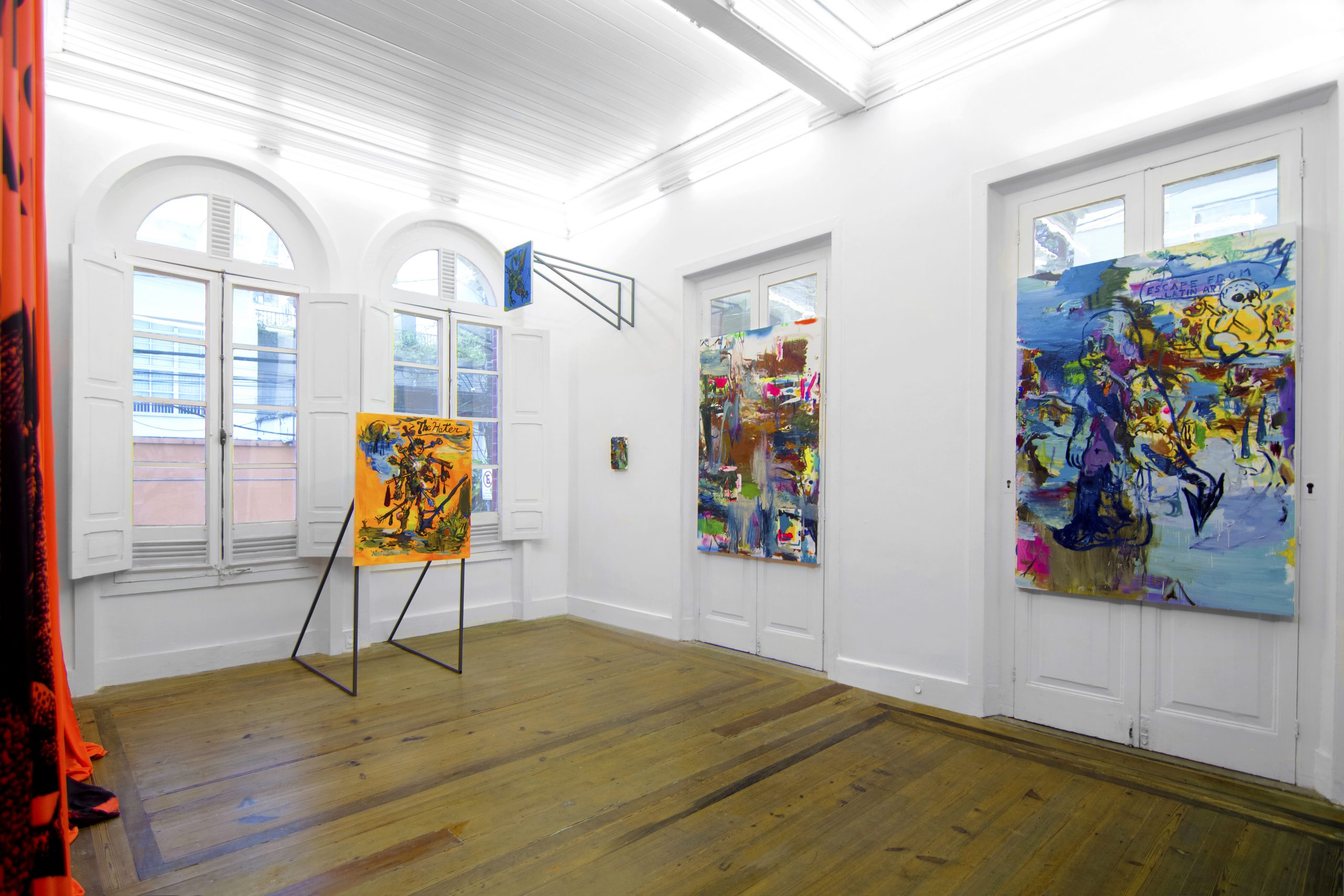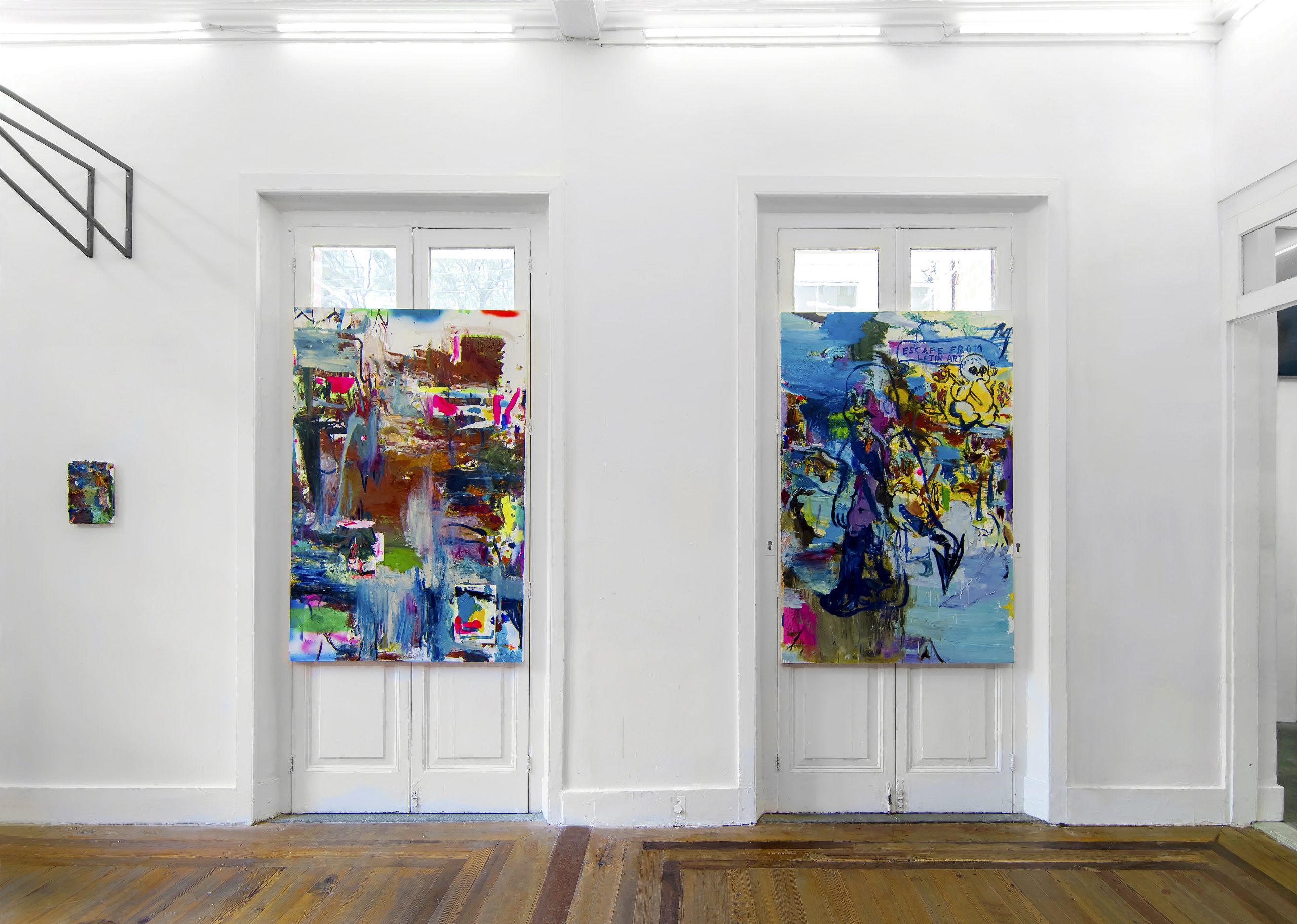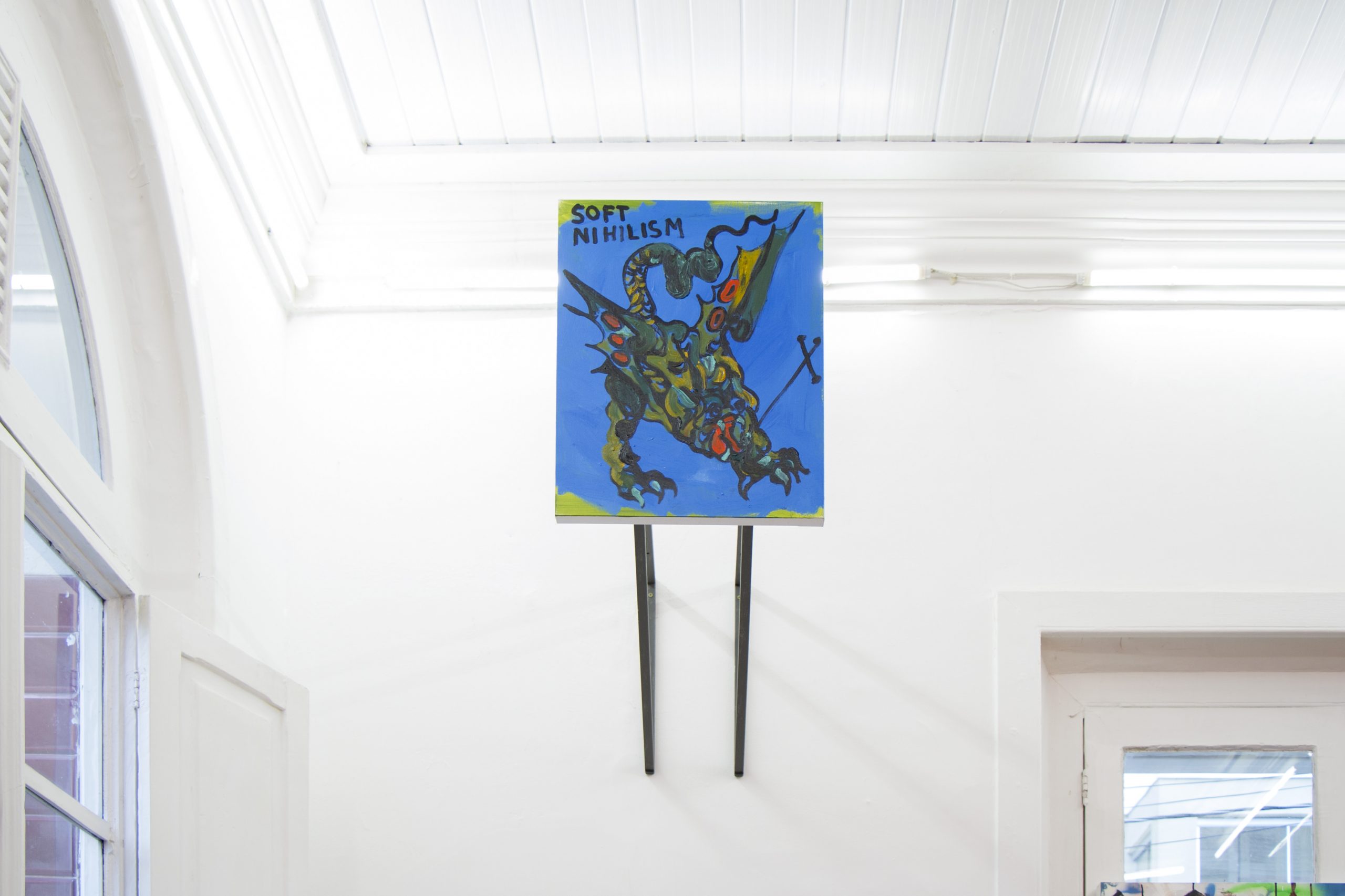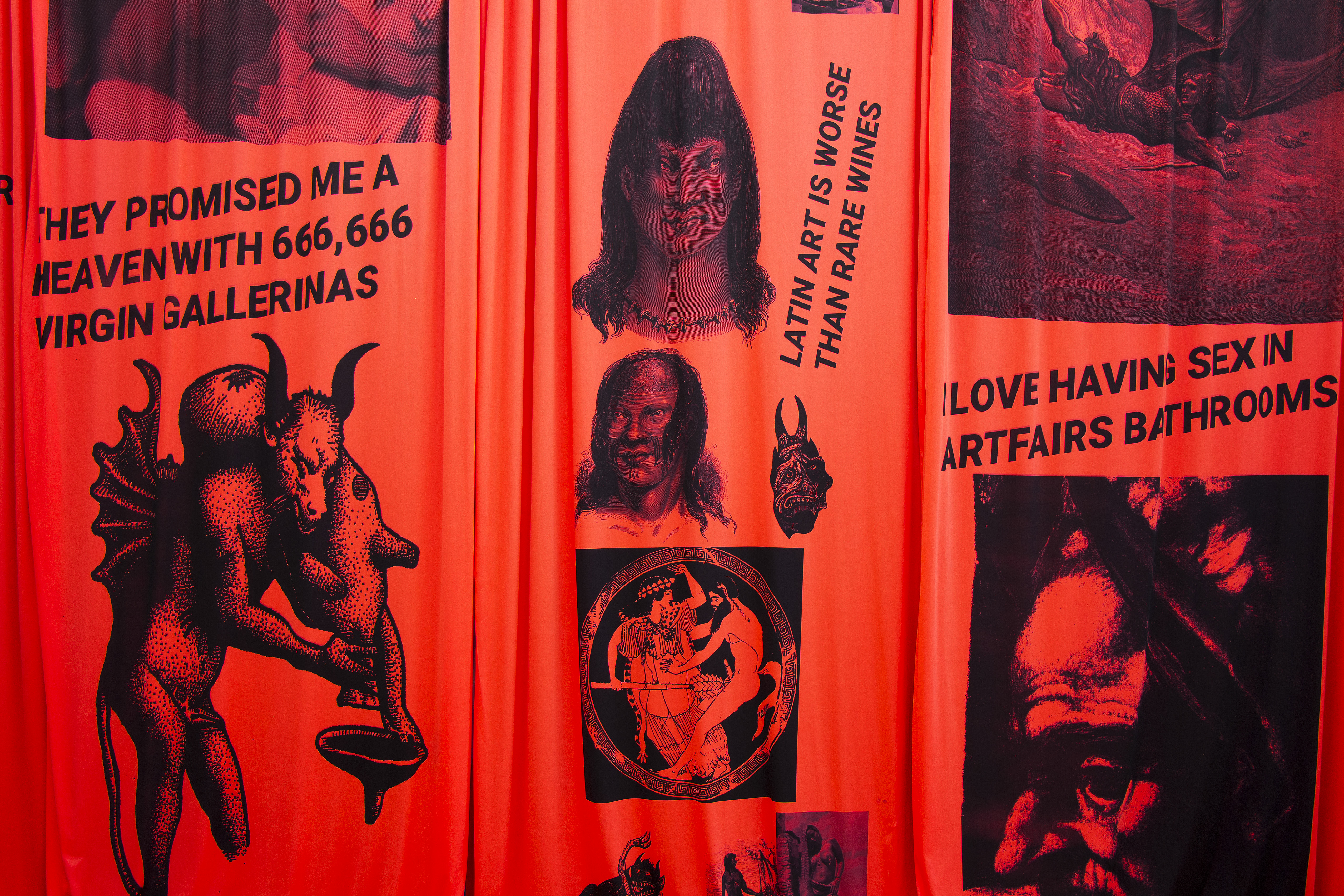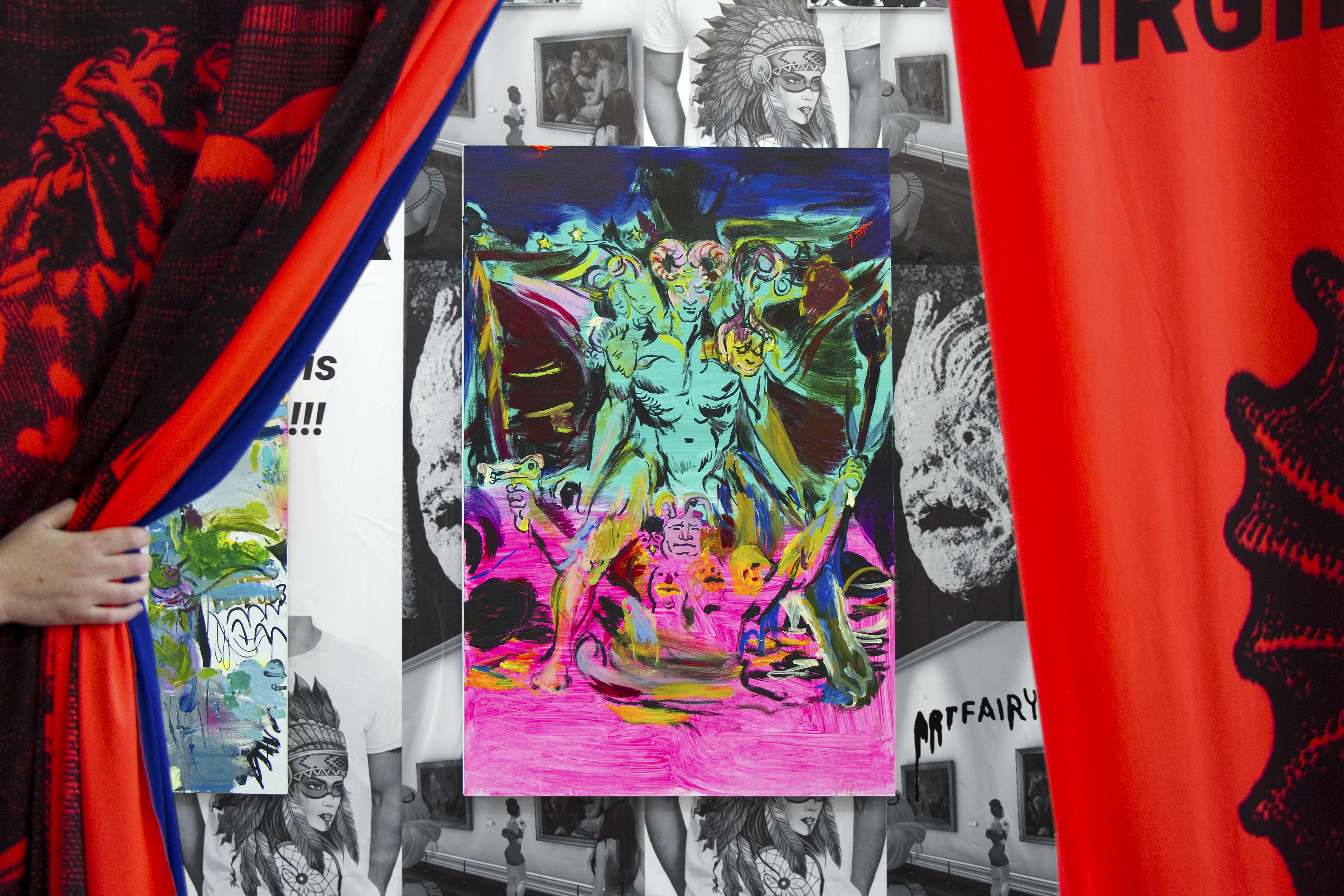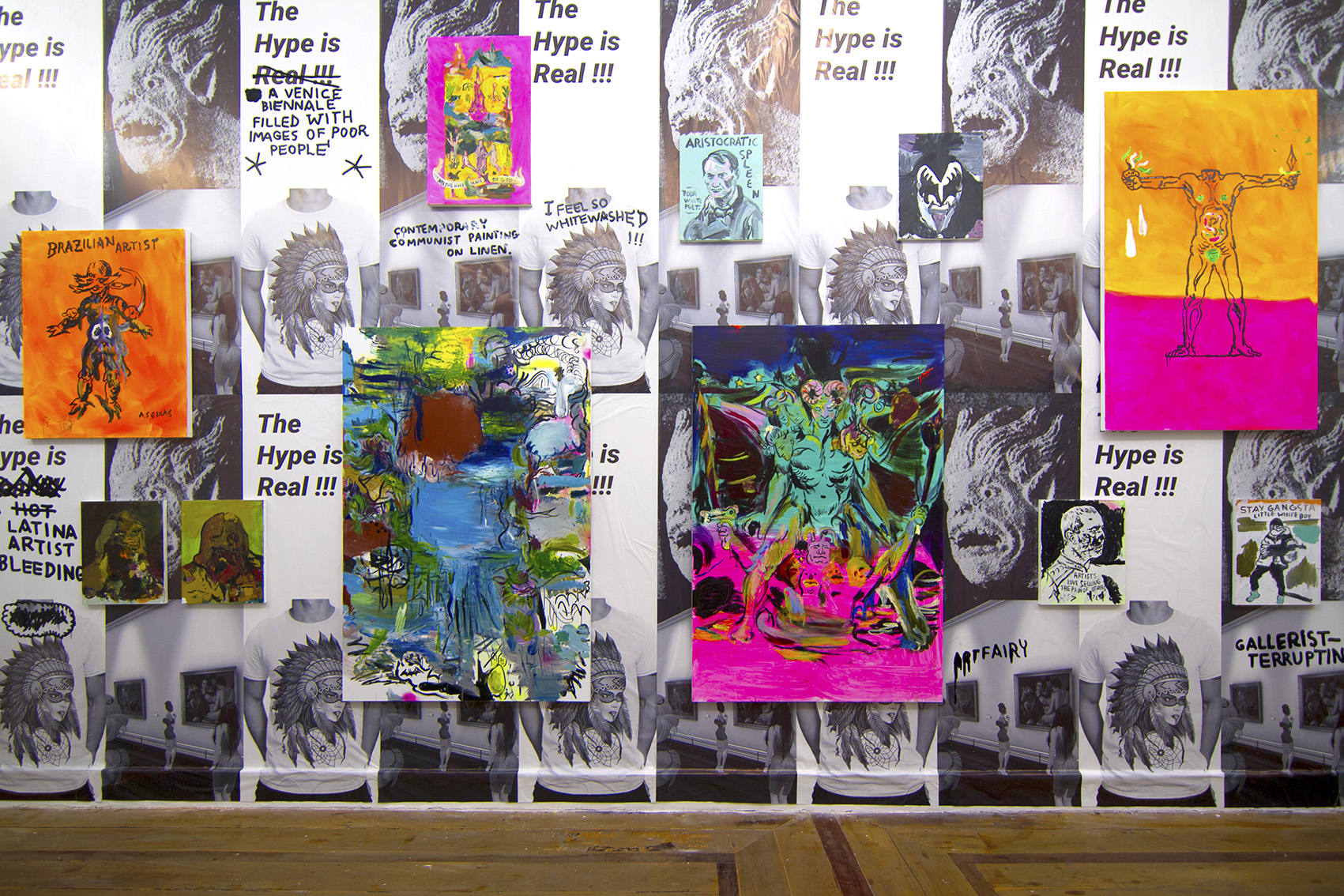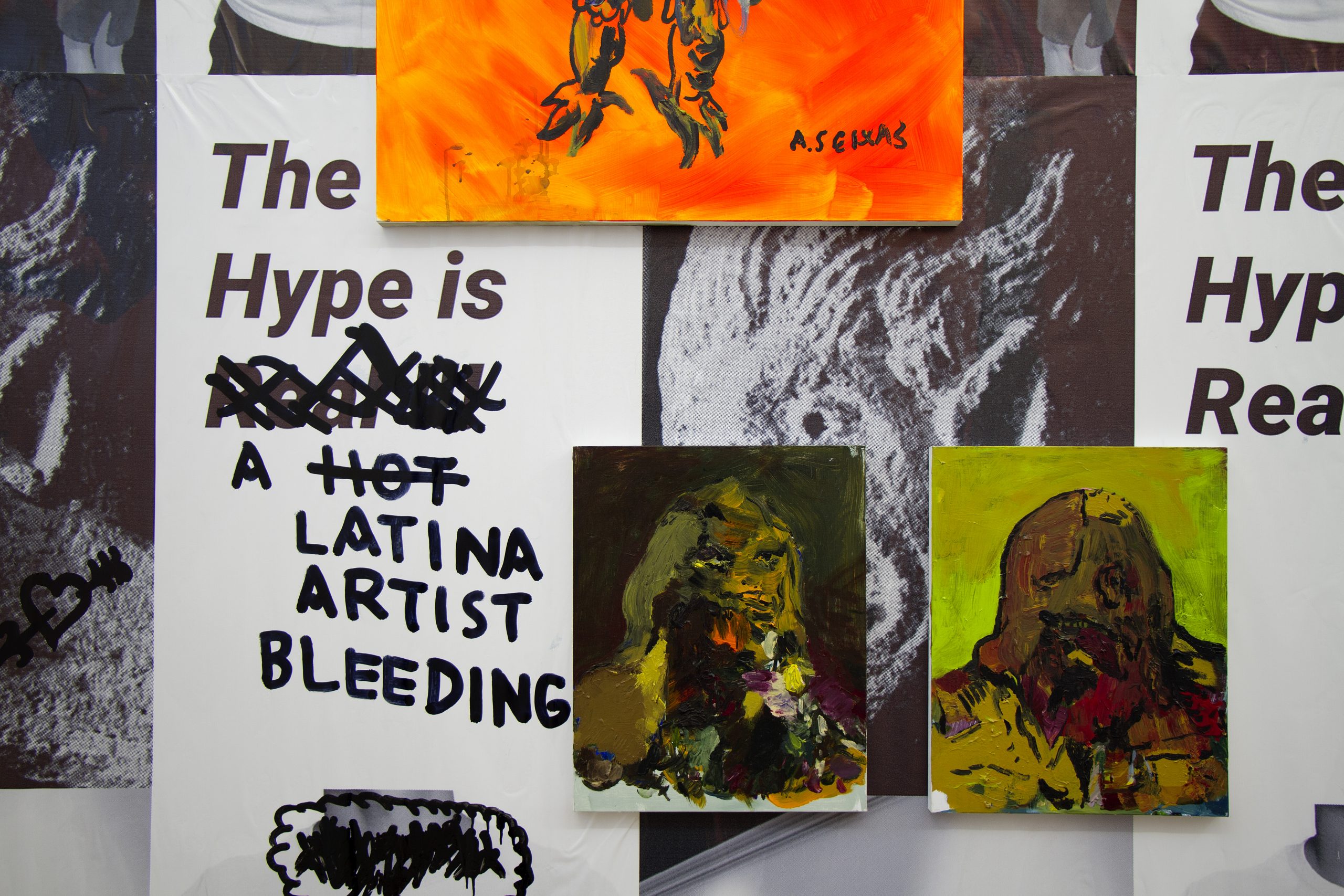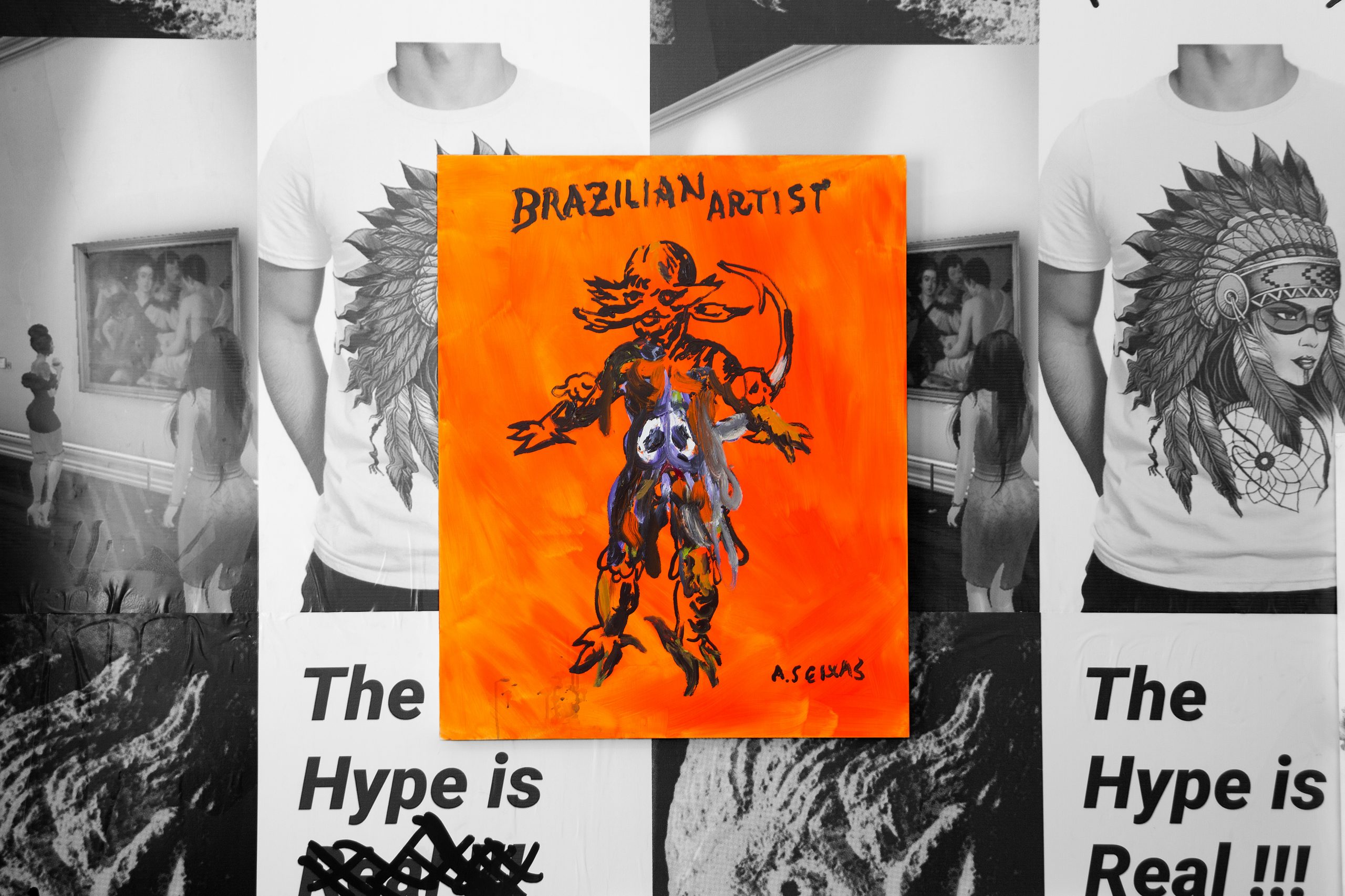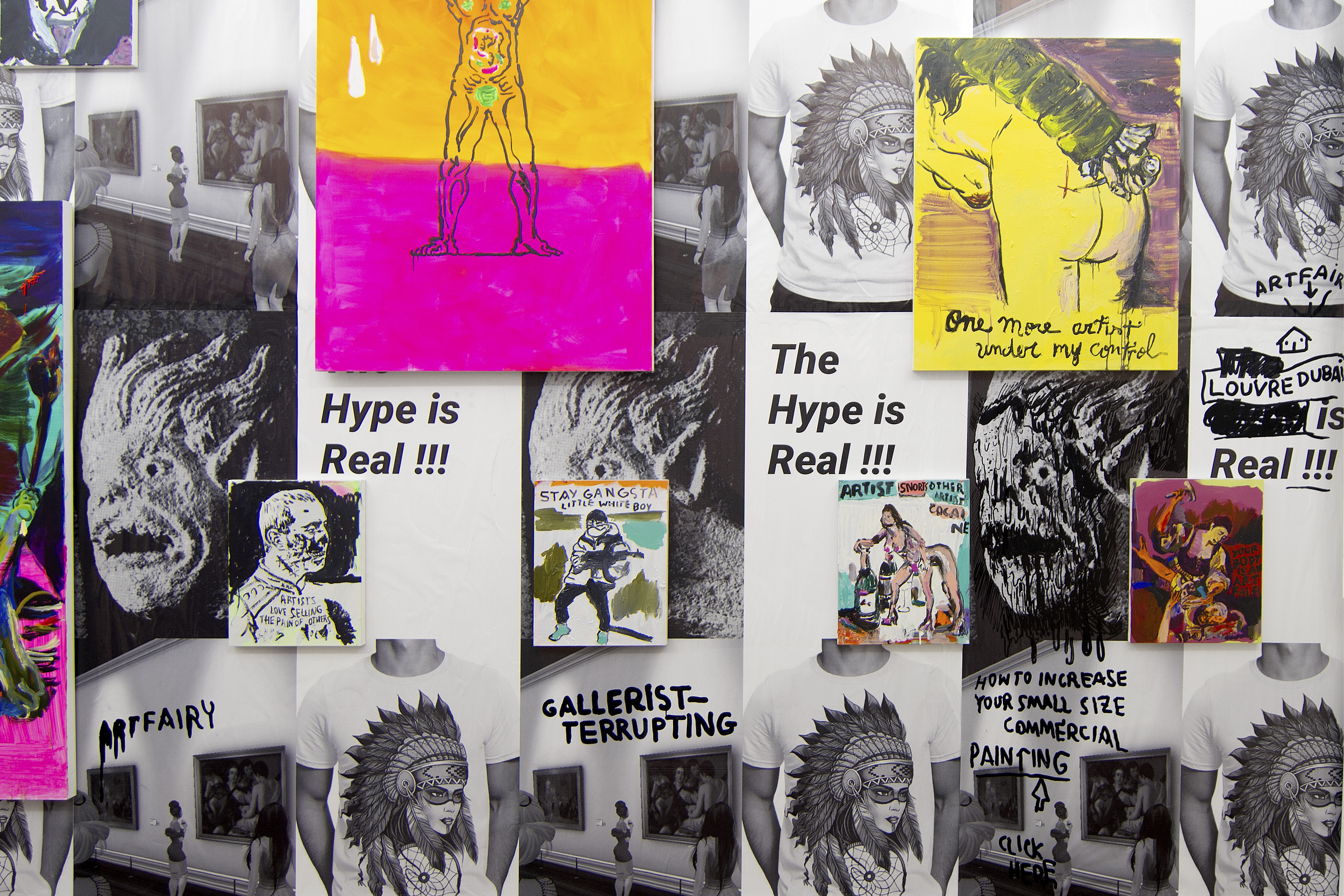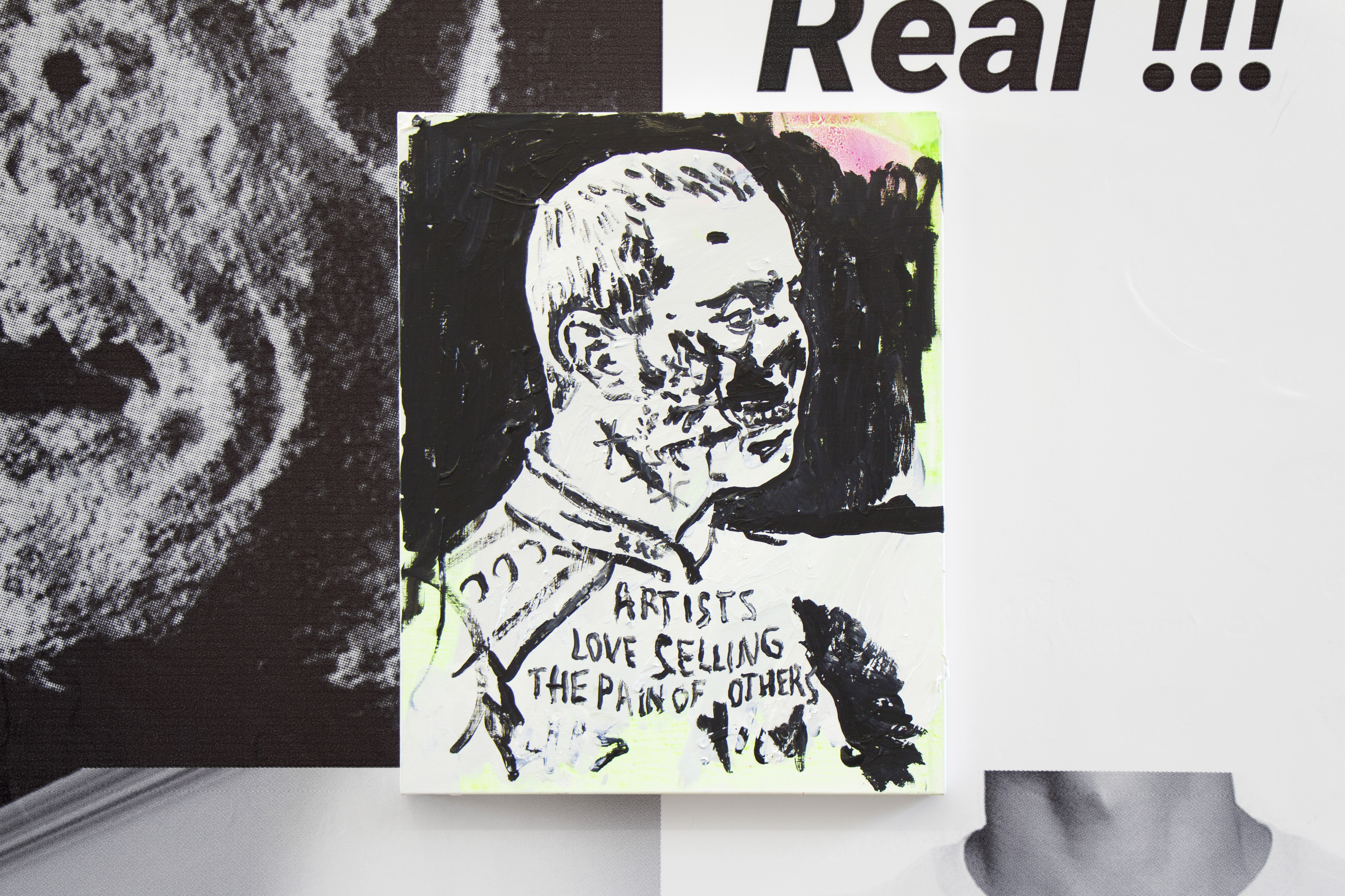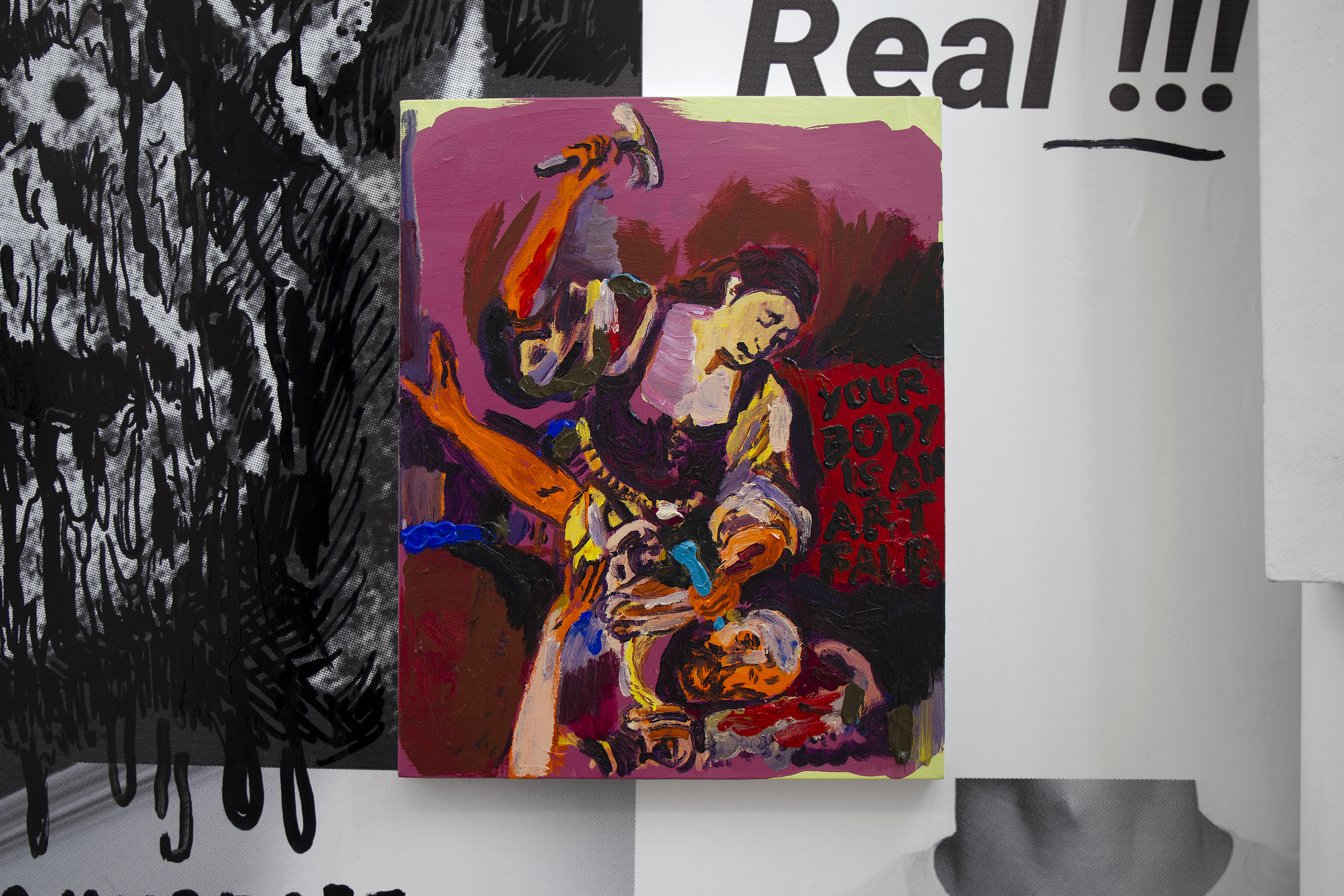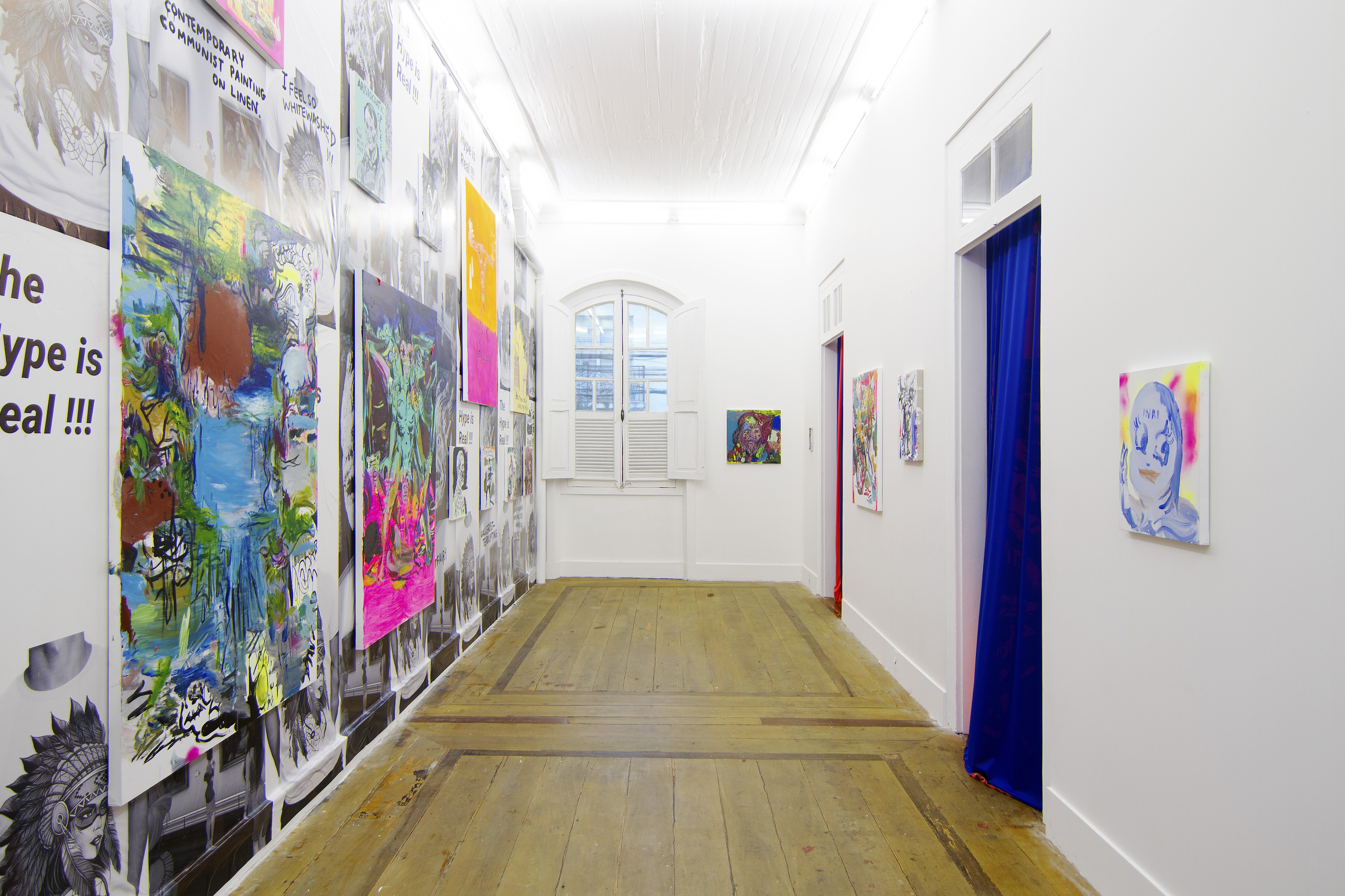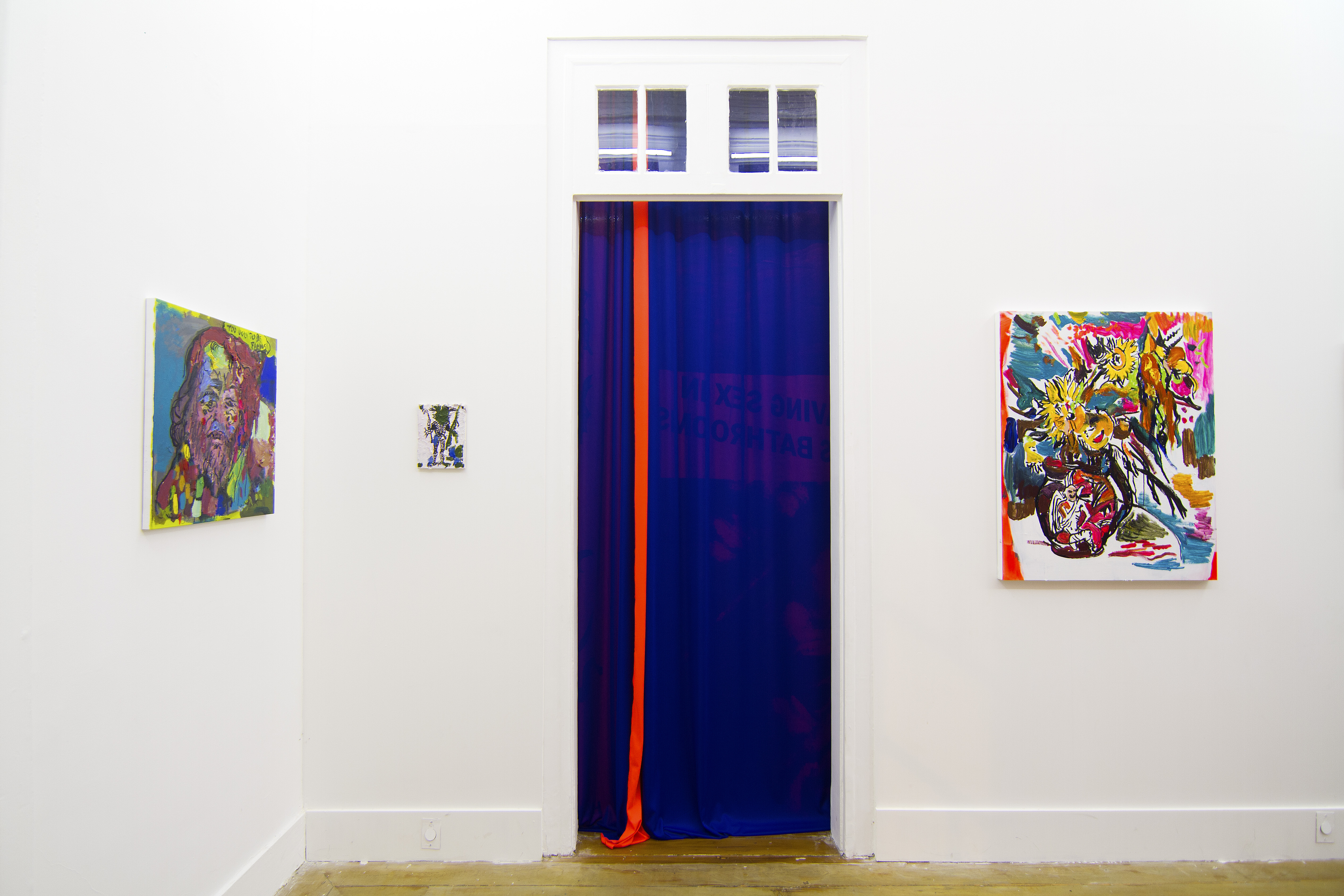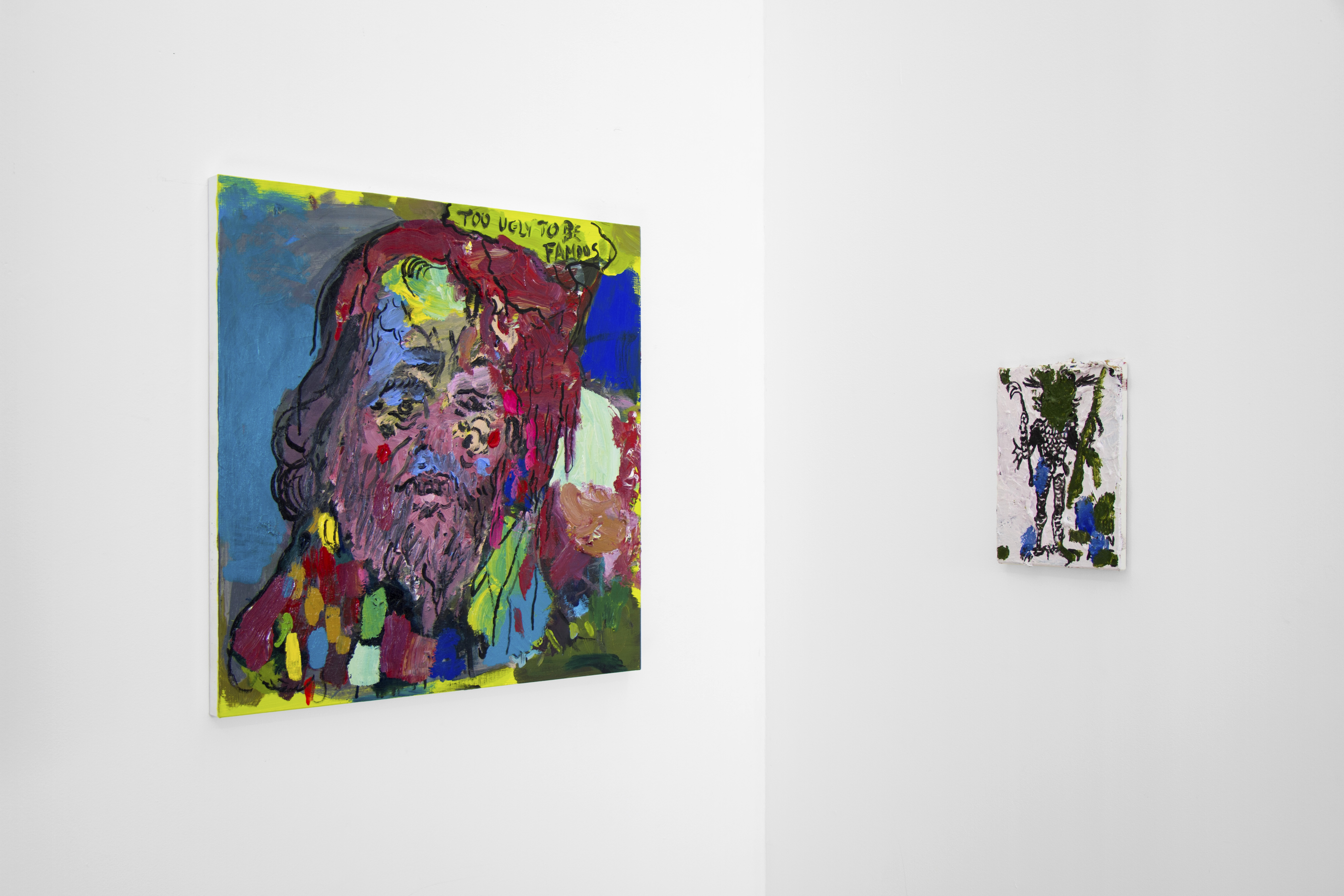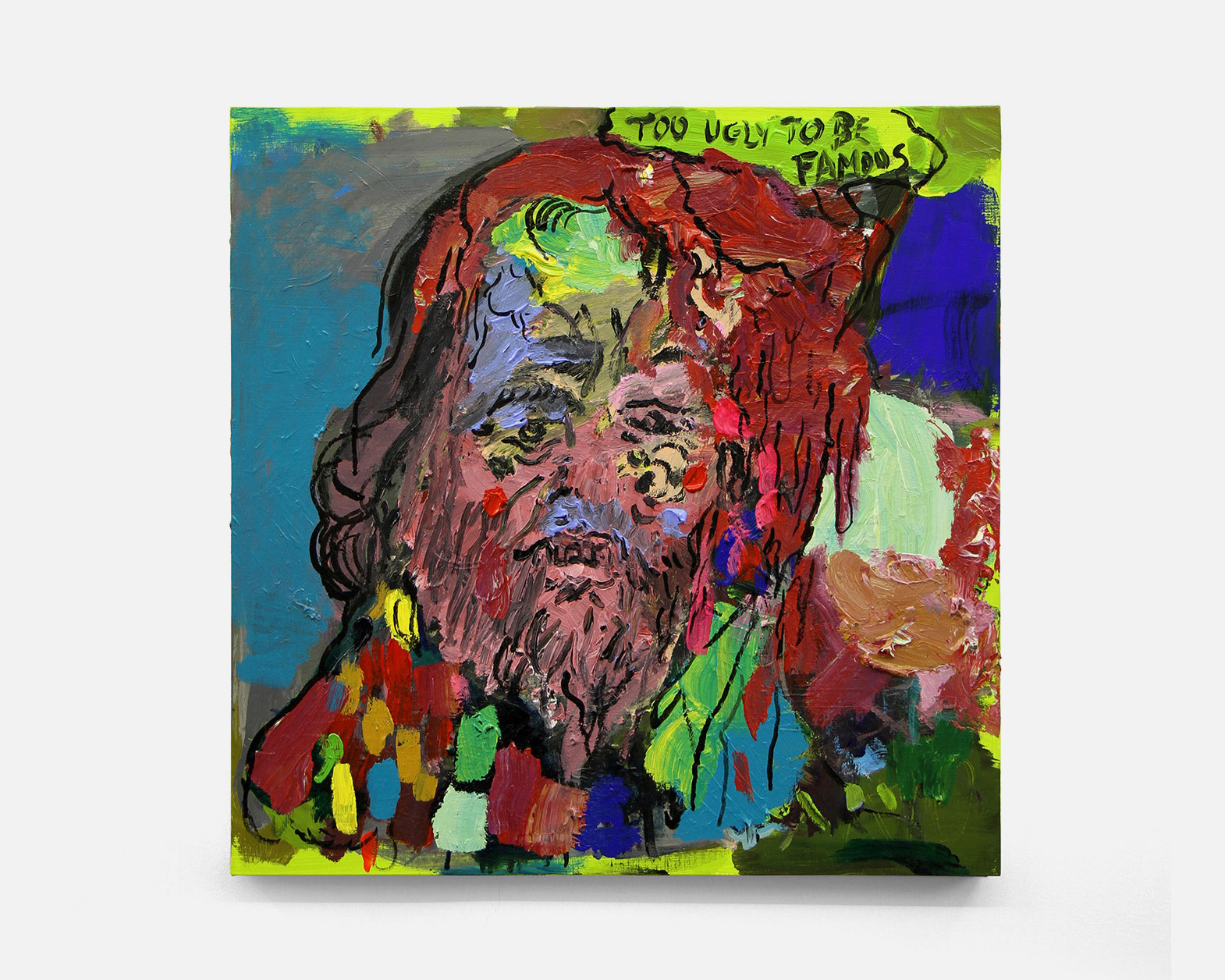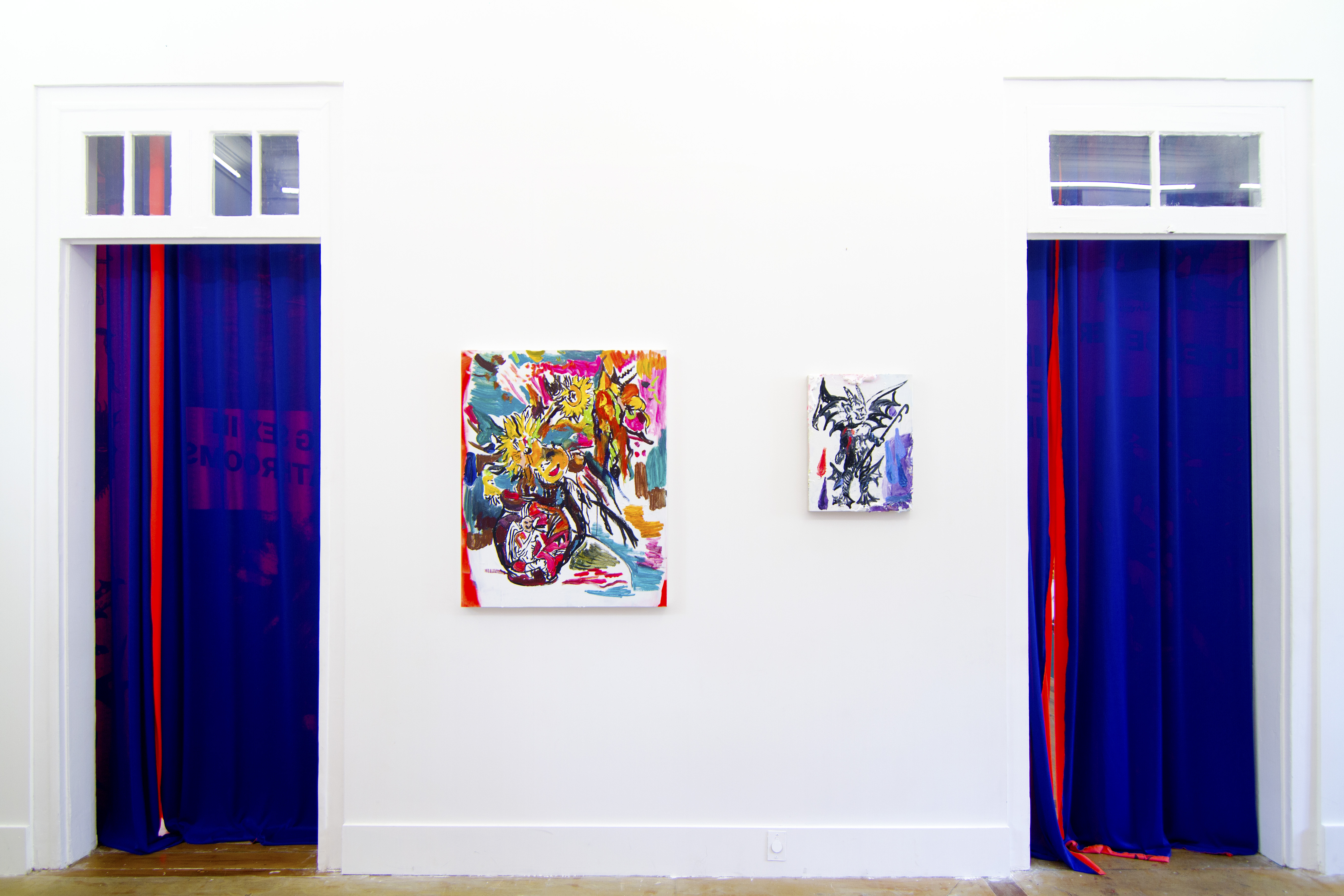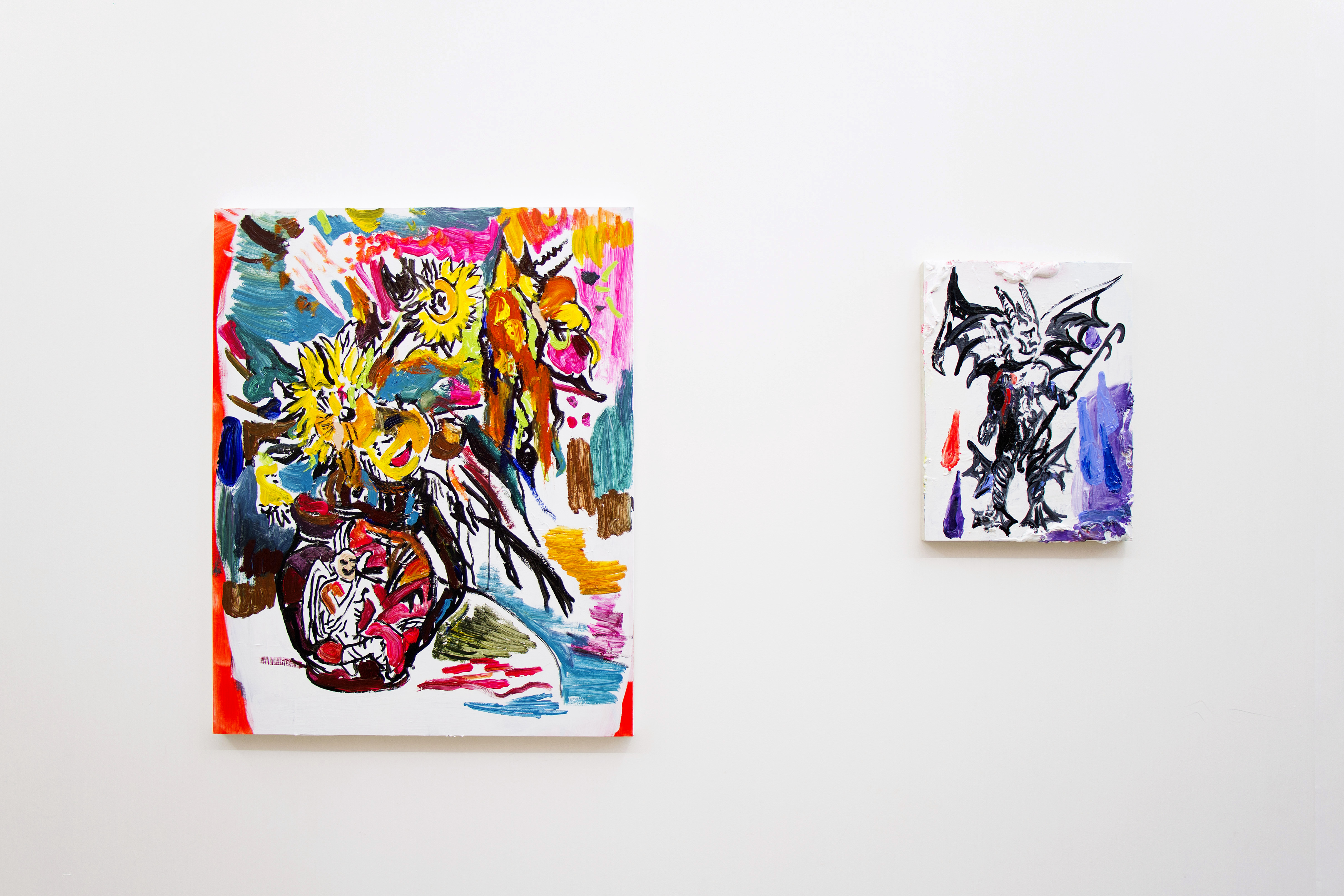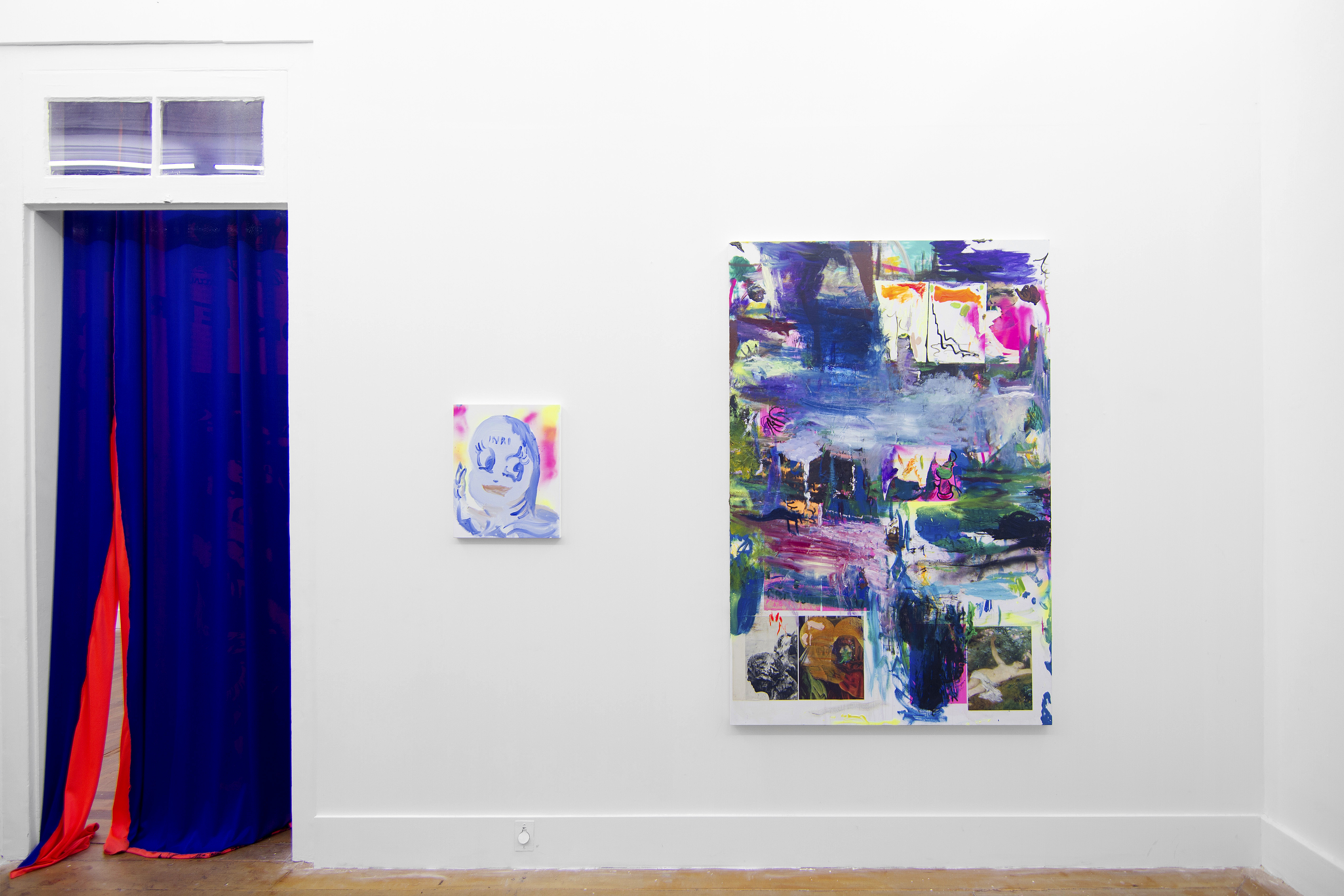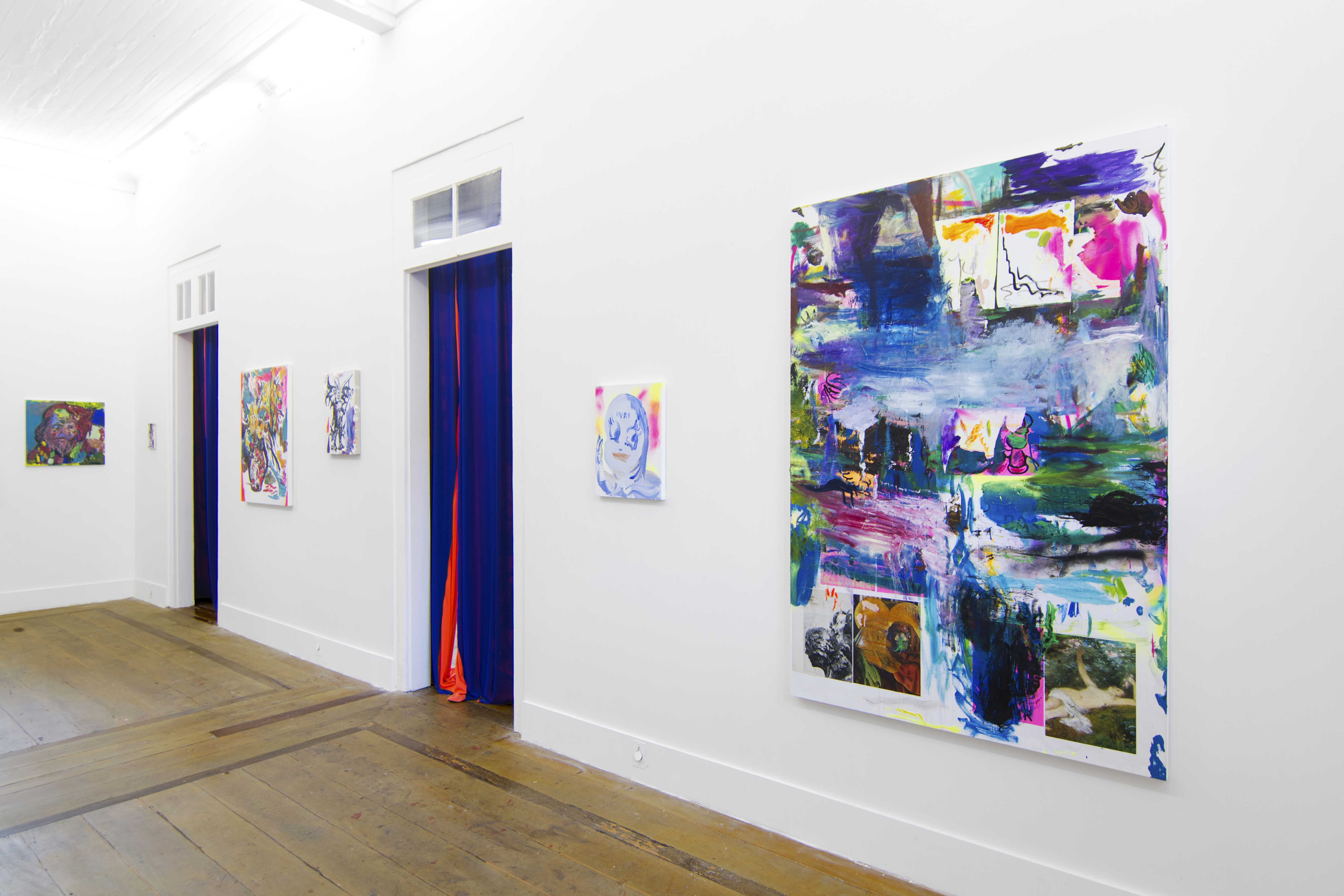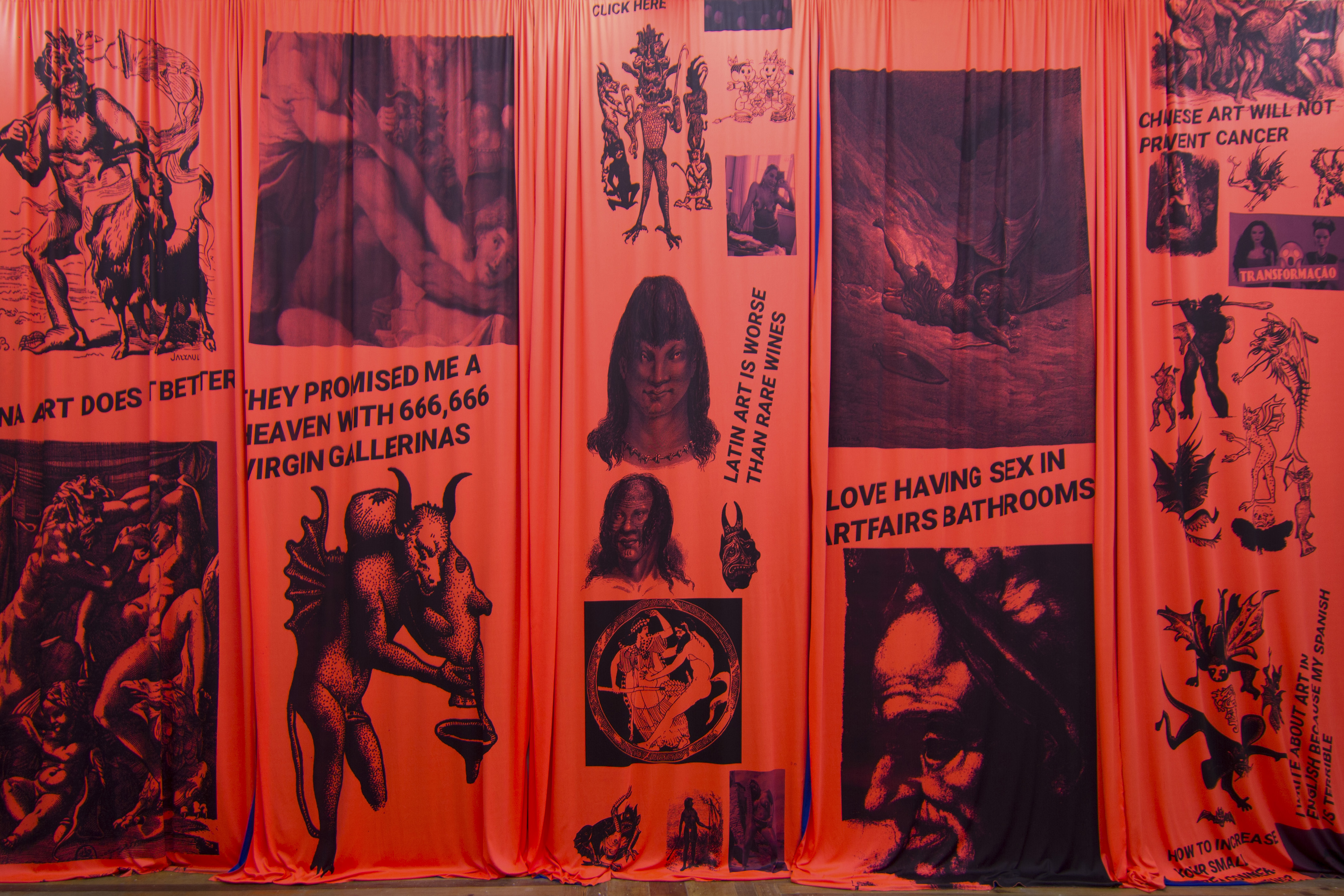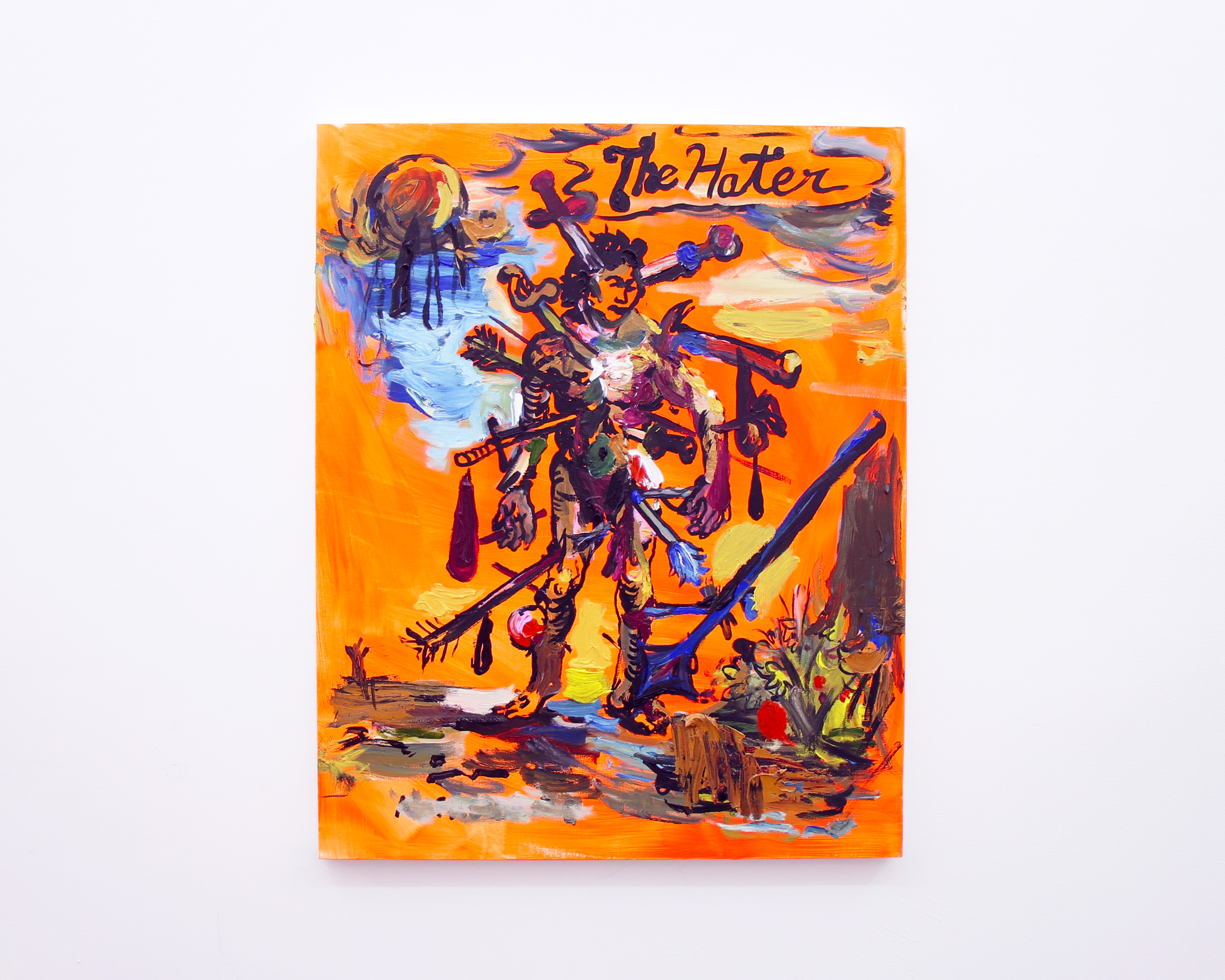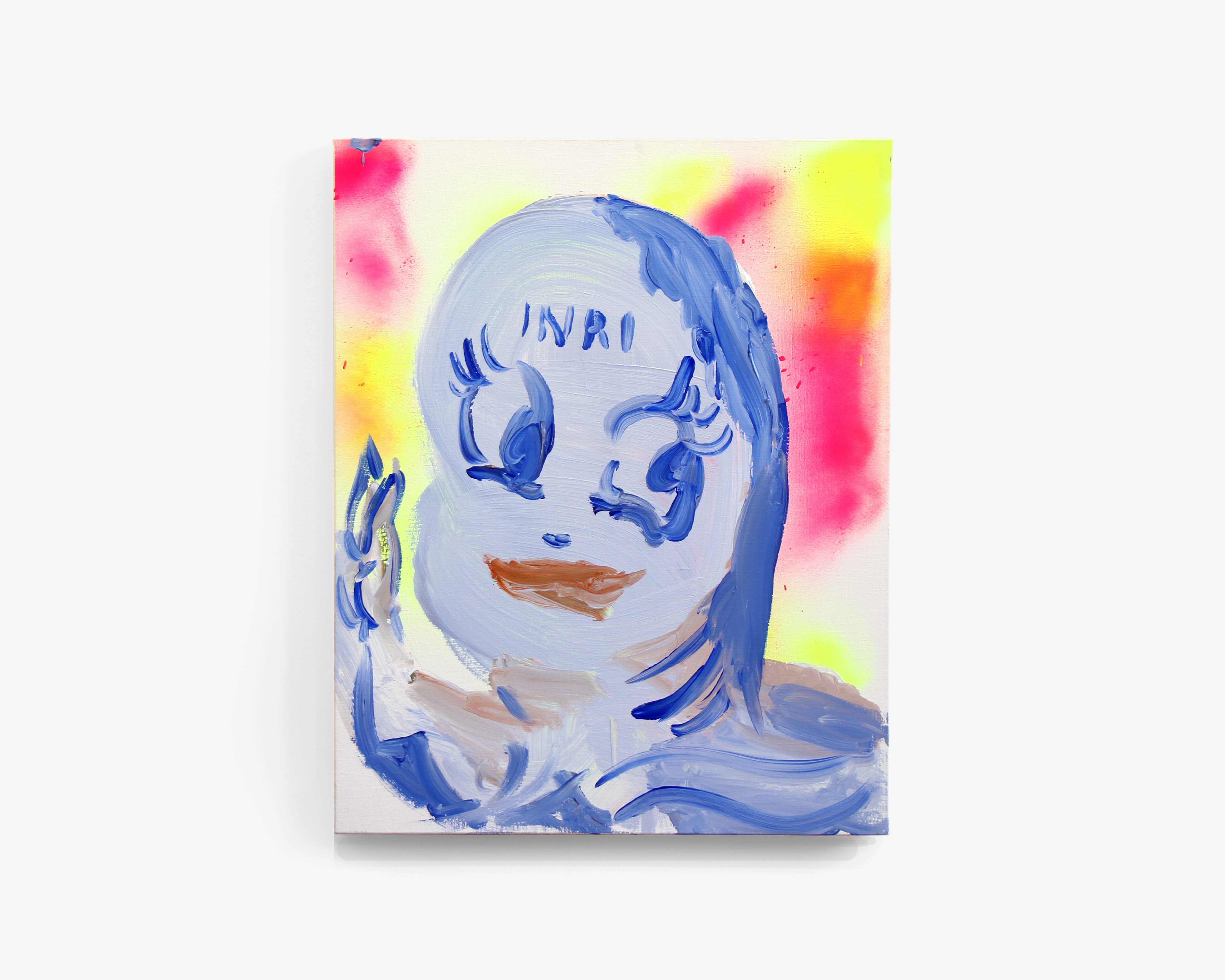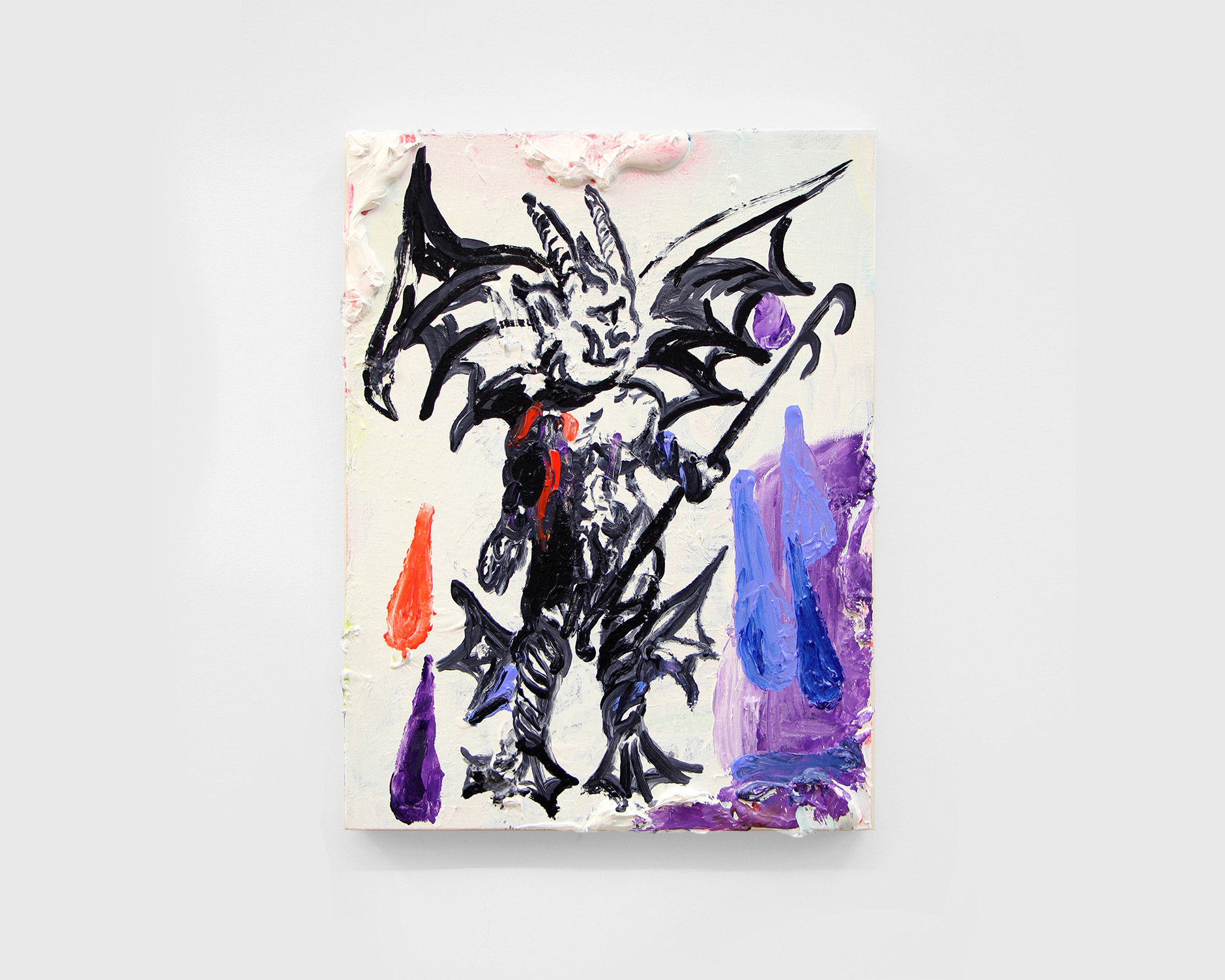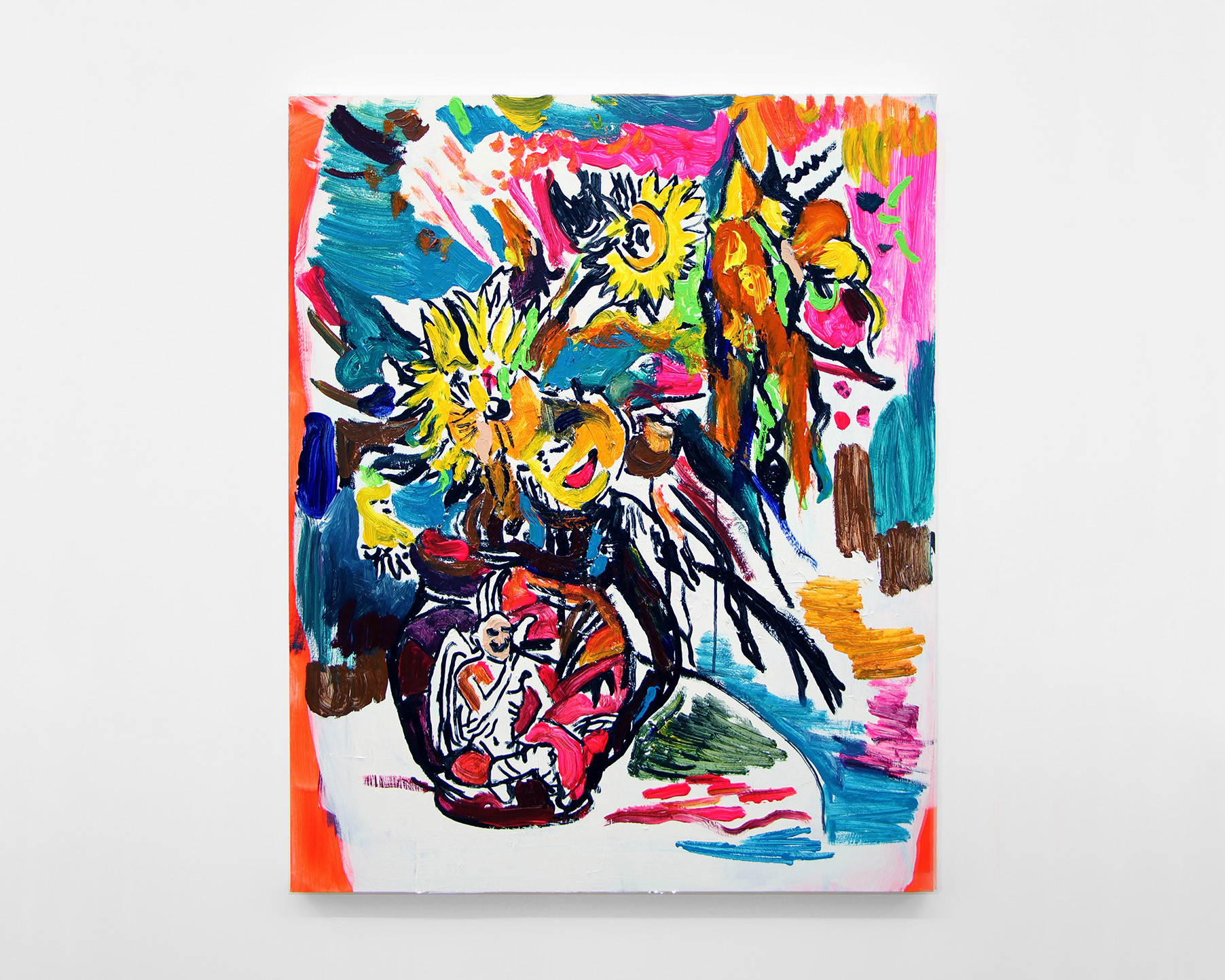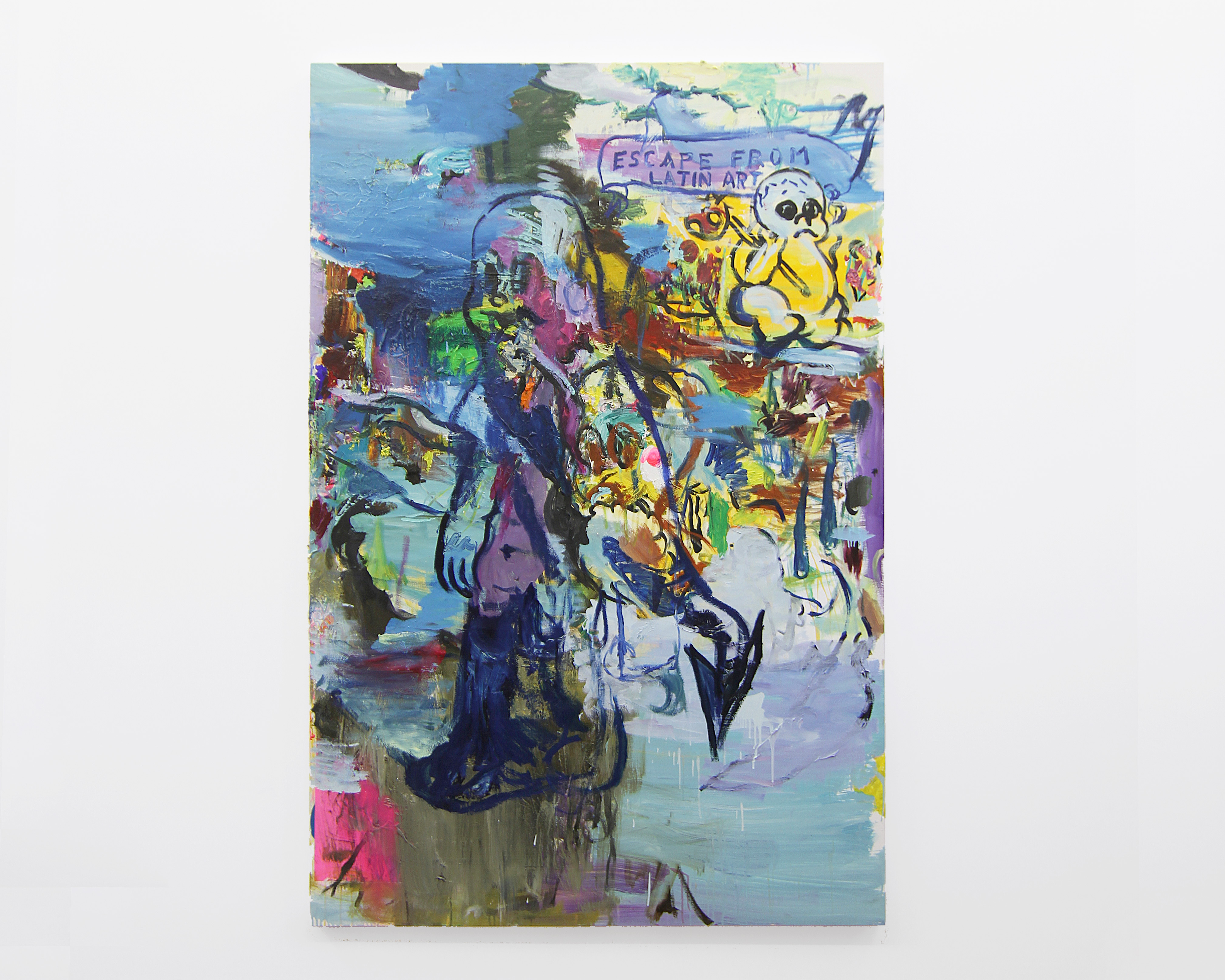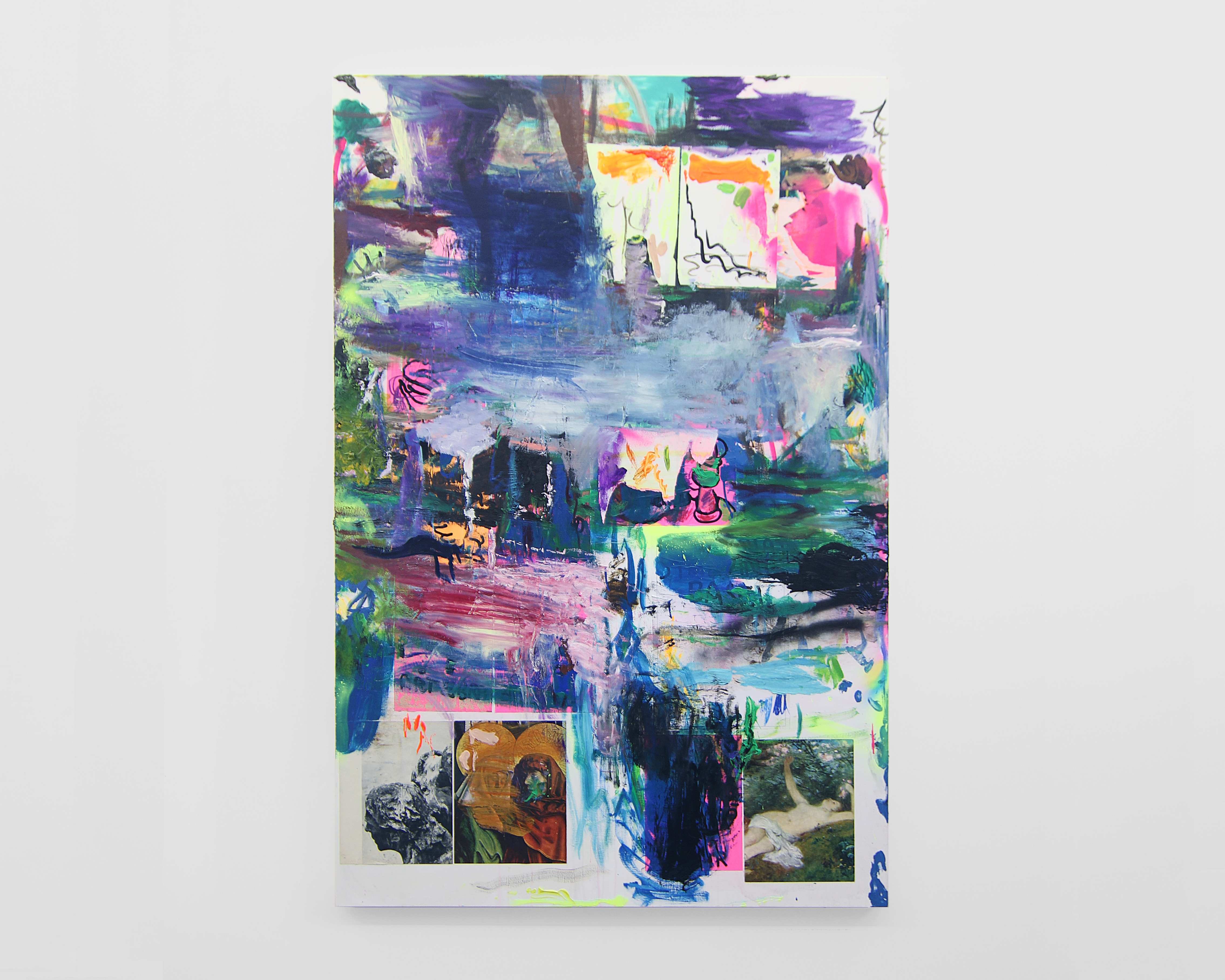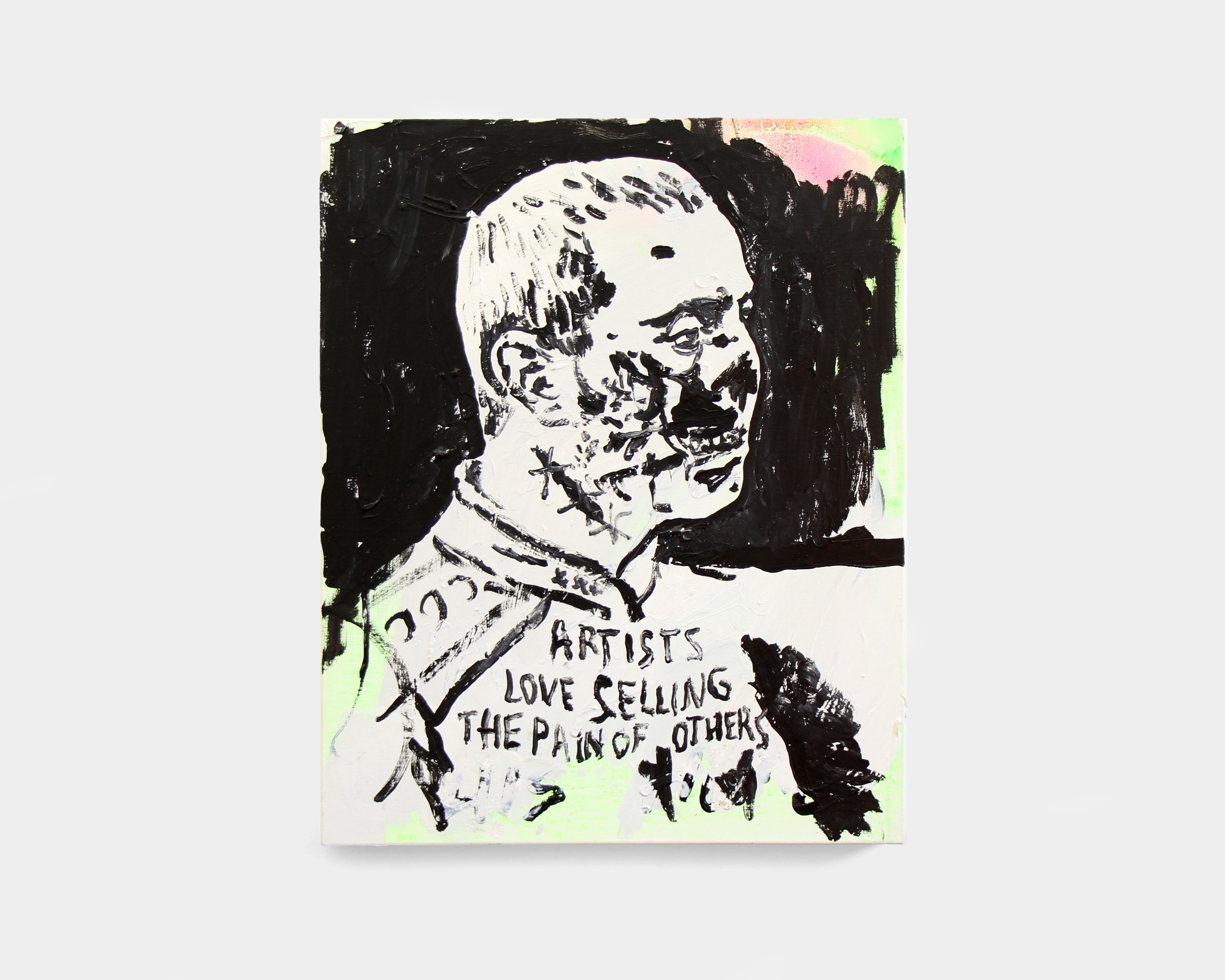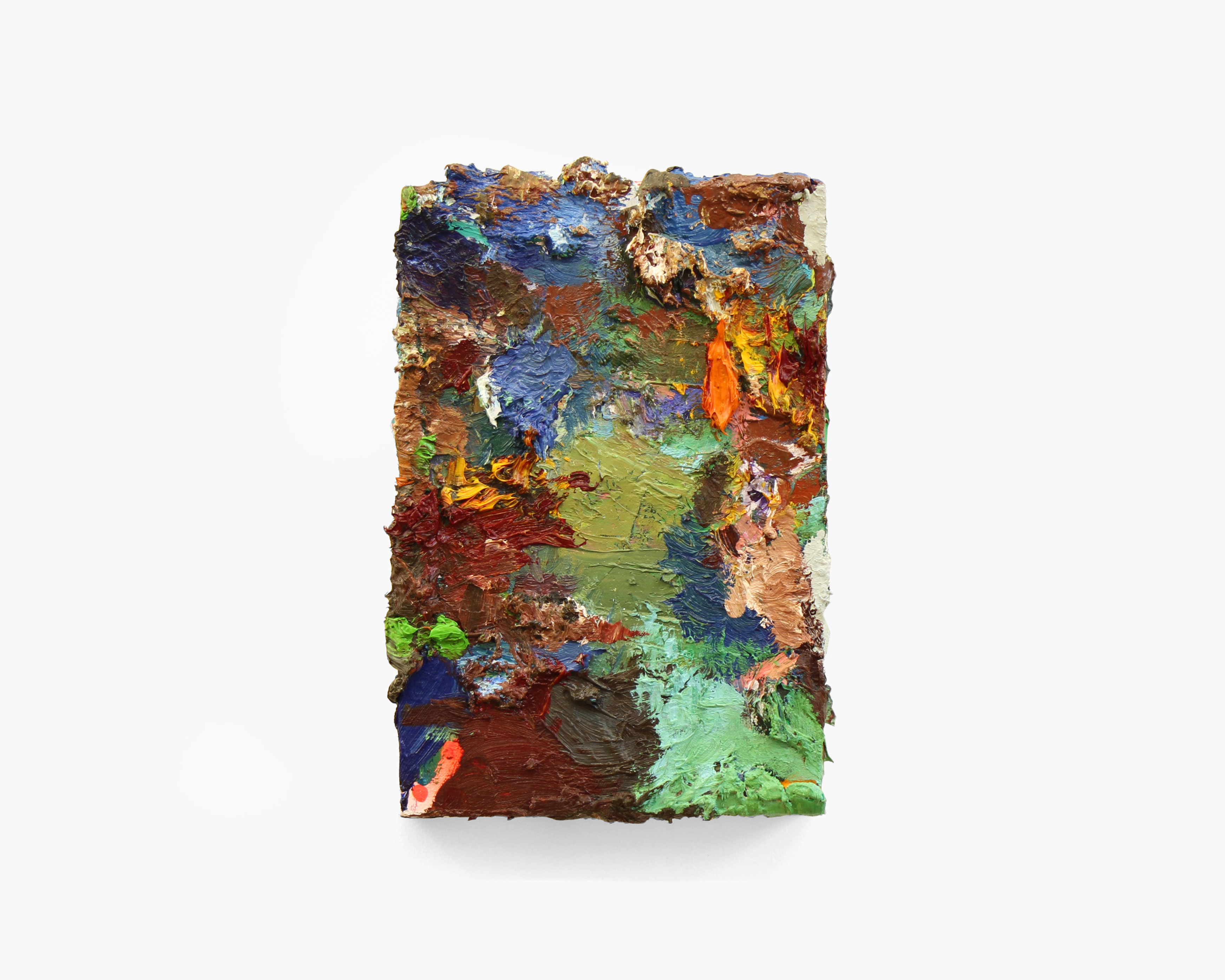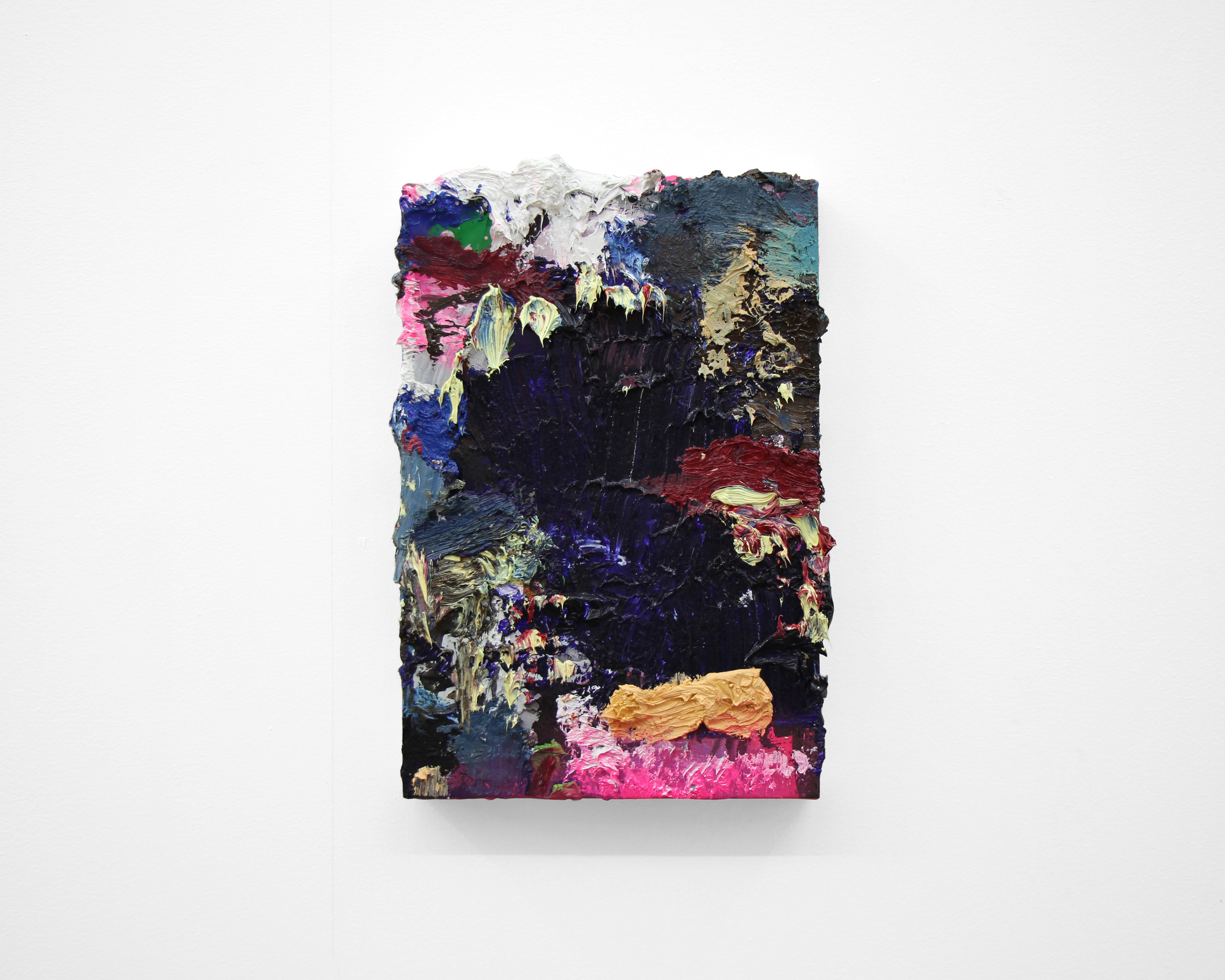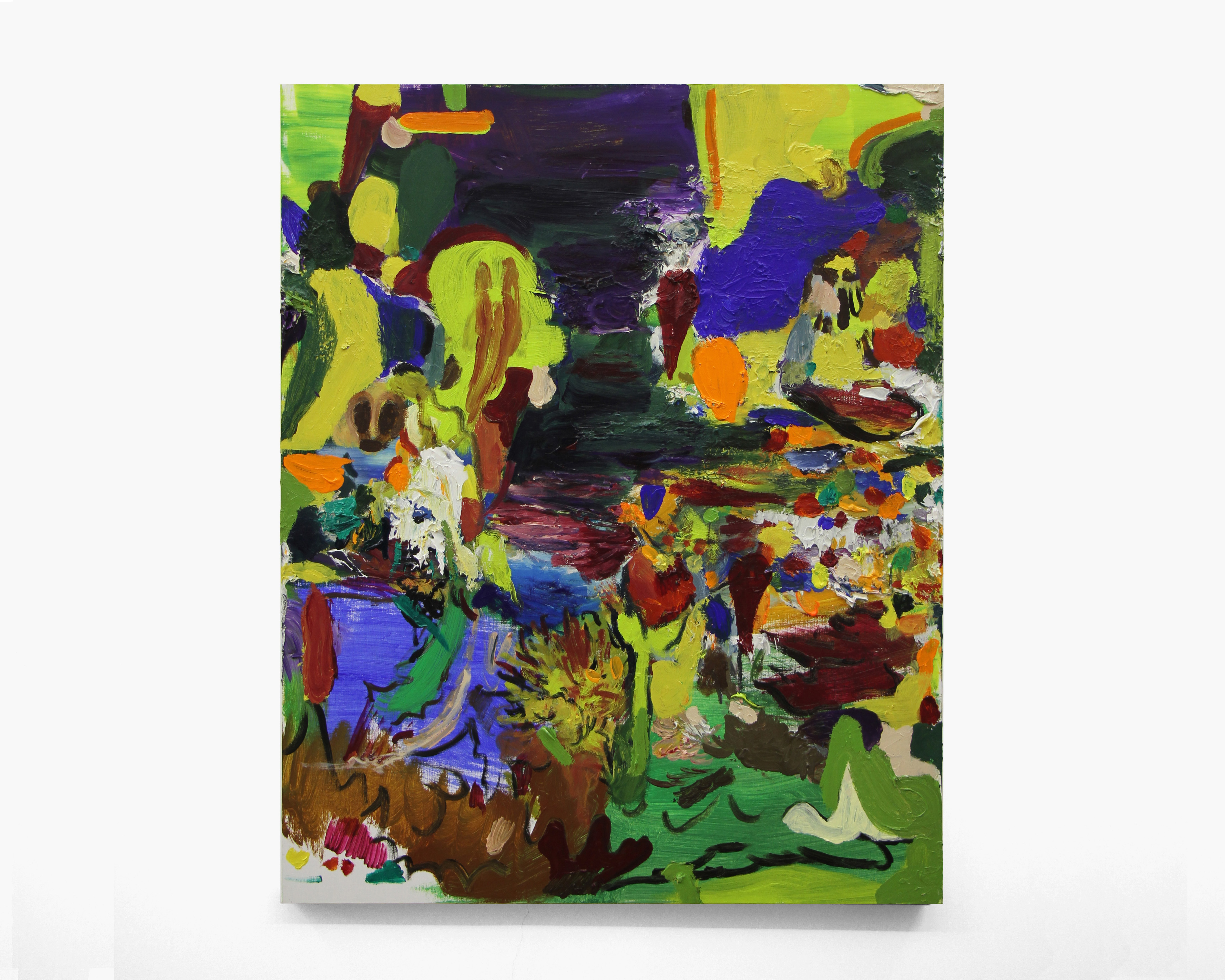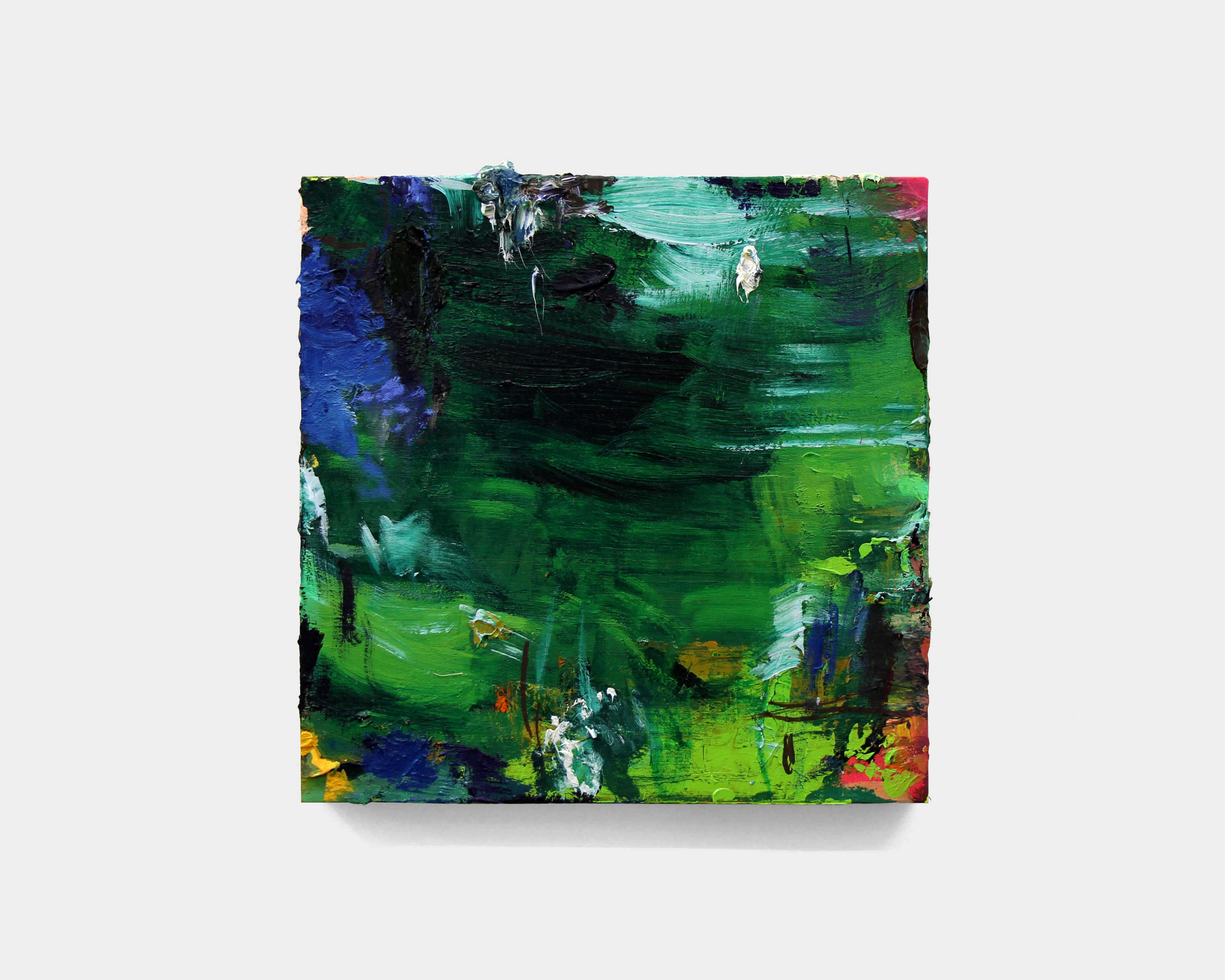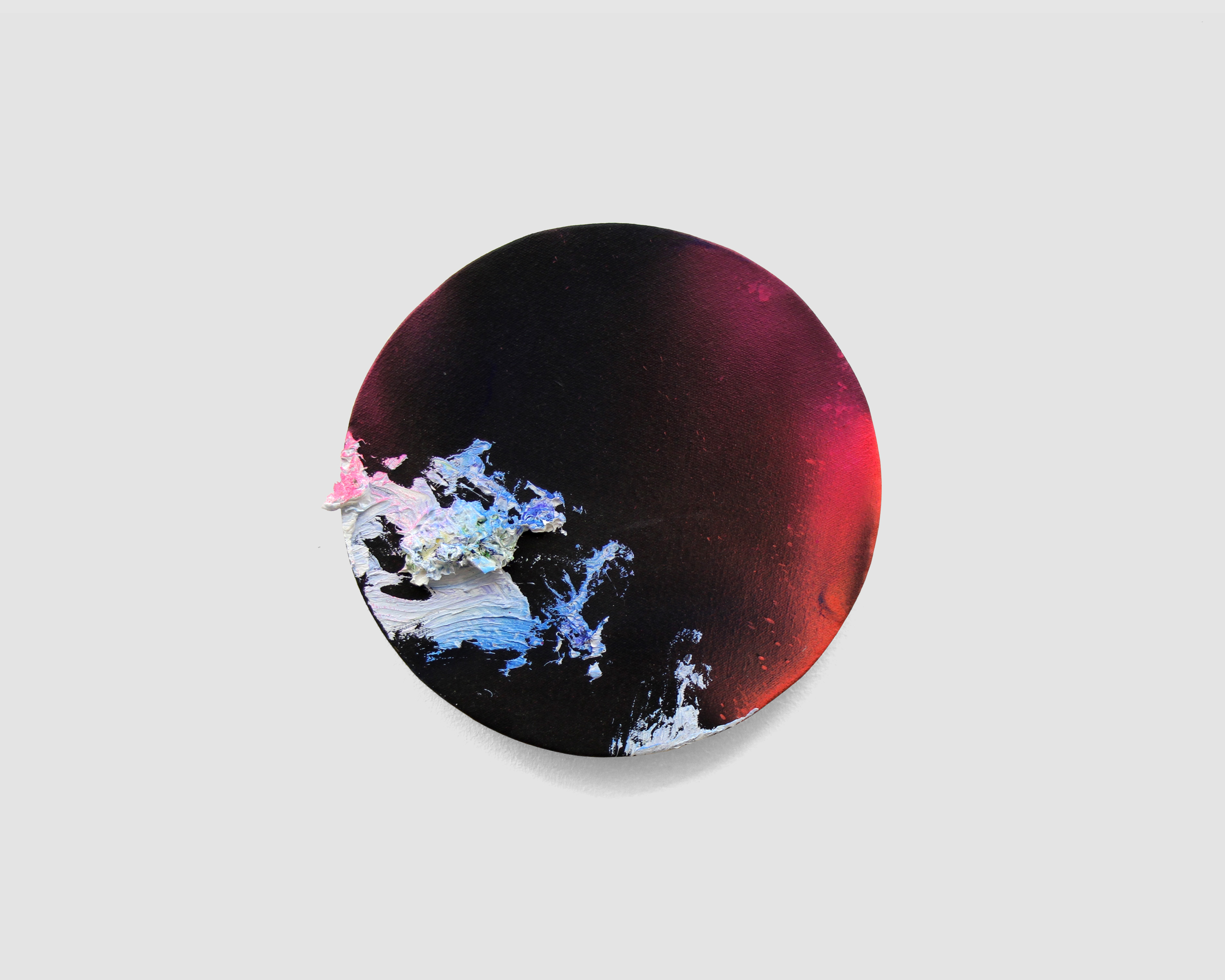Alvaro Seixas
The Importance of the Devil
Rio de Janeiro | November 28, 2019 — January 18, 2020
Alvaro Seixas
Untitled Painting (Romantic Painting), 2019
oil, acrylic, spray and collage on canvas
180 × 120 cm
Release
Alvaro Seixas opens on November 28th the exhibition ‘The Importance of the Devil’, his second solo show at Cavalo. The Rio de Janeiro based artist known for his critical posture and comical posts that pin curators, gallerists, collectors and art collectives presents new works in the space in Botafogo neighborhood. The title, named after a 1932 essay by the Spanish writer José Bergamin, defends the relevance of the provocative and defiant agent role in the art circuit.
In ‘The Importance of the Devil’ Alvaro presents a repertoire of paintings produced in 2019, with motives ranging from expressionist abstractions to reinterpreted mythological scenes, to cartoon characters and sentences about the art universe. To this end, Seixas evokes from the demons of English romantic poets John Milton and William Blake to the exoticized imagery of Jean-Baptiste Debret, a painter who portrayed the daily life of colonial Brazil.
Seixas continues his research on installational painting, choosing unusual layouts of works in space. This time the artist uses new features in his production, such as graphic prints on paper, fabrics, and photographic backgrounds, expanding and contradicting his title as a painter. The dynamics of digital images of smartphones are, alongside the tradition of painting, their source of inspiration.
In his homonymous text, the poet José Bergamin praises the ambiguity. This is also a central theme of Alvaro’s new production, exercising its irony by satirizing the art system and from it reflecting on figures of power, morality, and the dimension of the figures of martyr and traitor. “How to be popular and pop being unpopular, that is, betraying the medium?” The artist wonders. ‘How to oppose the art system within that system itself? How to criticize and flirt with the system being one of its agents?
In a time of global political instability, Seixas’s slogans, tragic, romantic, angry and nihilistic texts attempt to bring down deified works of Brazilian and world art.
